
A complete guide to the Tourist Tax in Spain: What it is, who must pay it and what are the consequences of non-compliance.
- Post author By Valery Saavedra
- Post date 08/08/2023
- No Comments on A complete guide to the Tourist Tax in Spain: What it is, who must pay it and what are the consequences of non-compliance.
What is the Tourist Tax in Spain?
The Tourist Tax in Spain is a tax applied in certain tourist destinations, with the main purpose of financing conservation and sustainability projects . It is characterised by the fact that it is an economic contribution that visitors make during their stay, aimed at maintaining and protecting the natural and cultural environment of the place.
The money collected through the Tourist Tax is directly invested in actions that promote environmental conservation and sustainability. This can range from the protection of natural areas, to projects to improve energy efficiency or promote the use of renewable energies.
Tourist Tax plays a crucial role in promoting responsible tourism . By paying it, travellers contribute to the care and preservation of the natural and cultural resources of the destination they visit. It raises awareness of the environmental impact of tourism and encourages visitors to adopt more environmentally friendly behaviour.
Where is the Tourist Tax paid in Spain?
The tourist tax, also known as ecotax , is applied in several regions of Spain. However, two prominent tourist destinations where this tax is levied are Catalonia and the Balearic Islands .
In Catalonia , the implementation of the tourist tax became effective from 2012. Visitors must pay a fee that varies depending on the category of accommodation and location. It ranges from 0.60 euros to 3.50 euros per night and person.
On the other hand, in the Balearic Islands , the Tourist Tax was introduced in 2016. Here, the amount to be paid depends on the season (high or low) and the type of accommodation, ranging from 0.25 euros to 2 euros per night and person in high season.
As for how this tax is paid, in both regions it is generally collected at the end of the stay, being the responsibility of the establishment to collect it and its subsequent declaration to the tax authorities.
It is important to bear in mind that each Spanish autonomous community has its own rules and rates with regard to the Tourist Tax, so it is always advisable to find out more before travelling.
Thus, although both Autonomous Communities (Catalonia and Balearic Islands) charge a tourist tax, there are significant differences in terms of how much and how it is paid . At Chekin, we are well-aware that calculating tourist taxes is a complex and tedious process. There are many parameters involved that vary between regions and countries. But don’t worry, our software calculates them automatically for you .
What VAT is levied on the tourist tax?
The Tourist Tax , also known as ecotax, is subject to a value added tax (VAT) in Spain. This tax has a tax rate of 10% . This means that 10% of the total amount of the tourist tax goes to VAT .
It is important to note that this VAT is not added to the amount of the Tourist Tax, but is included in the final amount paid by the tourist. For example, if the Tourist Tax is 2 euros per night in an accommodation, the VAT would be 0.20 euros.
This percentage of VAT on the Tourist Tax is fixed and does not vary according to factors such as the type of accommodation or the season. In fact, it is applied uniformly to all transactions related to the tourist tax.
Payment of VAT is compulsory and non-compliance may lead to penalties. As with the Tourist Tax itself, it is the responsibility of the accommodation owner to collect this VAT and remit it to the tax administration.
Which cities have a tourist tax?
In Spain , several cities and regions have implemented the tourist tax to finance sustainability and conservation projects. In Catalonia, the cities of Barcelona, Girona, Tarragona and Lleida apply this tax to visitors. Each city has its own charging system and rates vary depending on the type of accommodation and the season. You can find our legal guide for Catalonia to make sure your property meets all requirements such as Tourist Taxes.
The Balearic Islands have also adopted the ecotax . In this case, Palma de Mallorca, Ibiza and Menorca are destinations where this tax is charged to tourists. As in Catalonia, the rates may depend on the type of accommodation and the season.
It is important to note that the money collected through the tourist tax is used to finance projects that seek to preserve the environment and promote more sustainable tourism in these regions. In the following section, we will focus on who is obliged to pay this tax.
How can I automate the Tourist Tax collection process?
To facilitate the collection of the ecotax, there are tools that allow you to automate this process . One of these is Chekin , a digital platform that allows you to manage guest registration and payments, including the collection of ecotax. This tool is especially useful if you manage multiple properties or if you don’t live close to your holiday properties to be able to do it remotely.
With Chekin , you can:
- Automate the Tourist Tax calculation based on guest data and local regulations.
- Ask your guests to pay the tourist tax during online check-in.
- Manage your collections and collect the tourist tax in an automated way thanks to Chekin .
Adopting this technological solution can save you time and avoid errors in the calculation and collection of the ecotax . Remember, it is not only about complying with your tax obligations, but also about contributing to sustainable tourism.
Who has to pay the Tourist Tax in Spain?
The payment of the Tourist Tax in Spain is an obligation for all tourists over 16 years of age who stay in tourist establishments, from hotels to tourist flats, campsites and cruises. Even those who stay overnight in their private boat in the waters of the Balearic Islands are subject to this tax.
There are specific categories of individuals and entities that are obliged to pay. Owners of tourist establishments are responsible for collecting the Tourist Tax from their guests and transferring it to the government.
However, there are some exceptions as to who is exempt from paying the Tourist Tax. For example, persons with a recognised disability of 33% or more and their companions, children under the age of 16, people travelling for work purposes, or those in urgent or emergency situations are exempt from payment.
There are also specific situations where the Tourist Tax is not required. If an individual stays for a long period (more than 20 consecutive days) in the same establishment, the days from the 20th day onwards are exempt from payment.
Thus, it is important to be aware of the rules and regulations regarding the payment of the ecotax to avoid any inconvenience during your stay. Tourist Taxes by Chekin calculates the tourist rates for any place in the world, automatically meeting the official requirements of your country or region.
How much is the Tourist Tax? Amount at each site and exceptions
The ecotax, also known as tourist tax , varies depending on the location and type of accommodation. In Catalonia, for example, the amount can range from €0.60 to €3.50 per person per night, while in the Balearic Islands the amount can be as much as €2 per night.
There are certain exceptions to this general rule:
- Children under the age of 16 are exempt from this fee.
- In the Balearic Islands, during the low season (November to April), a 50% discount applies.
- Long term accommodation: if the stay exceeds 12 days, a 50% discount will be applied from the 13th day onwards.
These amounts serve as a reference to understand how much the Tourist Tax could be. However, it is crucial to consult updated local rates to get an accurate figure and to be aware of any changes in exceptions or discounts.
What happens if I do not pay the Tourist Tax?
Failure to pay the Tourist Tax can lead to severe legal consequences . It is important to understand that this tax is not optional, but a legal duty for certain tourists and accommodation establishments.
Penalties or fines vary depending on the location and the seriousness of the infraction. For example, in the Balearic Islands, the fine can be up to 400,000 euros for tour operators who do not charge the Tourist Tax. In Catalonia, fines can be equally high for those who evade this tax. Moreover, repeated non-compliance can lead to additional restrictions and possible legal action. One notable case is that of a hotel in Mallorca that was forced to close for five days for non-payment of the Tourist Tax.
It is crucial to understand the importance of compliance with the Tourist tax , also known as ecotax, not only to avoid legal sanctions, but also to contribute to the sustainable development of tourist regions.
When is Tourist Tax levied?
The specific time at which the Tourist Tax is charged may vary depending on the location. Generally, this fee is charged at check-in or upon arrival at the accommodation. However, in some cases, it may be included in the total price when booking.
In relation to tax administration, the collection and management of the Tourist Tax is carried out by the relevant local authorities. These funds are then transferred to the treasury and earmarked for conservation and sustainable projects.
The funds raised through the ecotax play a crucial role in financing sustainable and conservation projects. These projects can address a variety of issues important to the local community, such as the conservation of protected natural areas, improvements to tourism infrastructure or environmental education programmes.
How much is the tourist tax in Catalonia?
The tourist tax in Catalonia varies depending on the type of accommodation and the season. For a 5-star hotel, the rate is 3.50 euros per night during the high season. In the case of tourist flats, you pay 2.25 euros per night all year round.
It is important to note that this amount collected is used to finance projects linked to sustainable tourism in Catalonia . These can range from the preservation and improvement of natural and cultural spaces to initiatives to promote responsible tourism.
This tourism tax model seeks to balance the impact of tourism with the benefits it brings to the region. It ensures that each visitor contributes directly to maintaining and enhancing the unique and attractive features of Catalonia that have led to its choice as a destination.
How much tourist tax do you pay in the Balearics?
If you plan to visit the beautiful Balearic Islands, it is important to be aware of the tourist tax you will have to pay. The specific amount varies according to the season and type of accommodation. In high season (May to October), five-star hotels and four-star superior accommodation charge a daily rate of €4.00 per person, while holiday homes charge €2.00. During the low season, these rates are halved.
It is worth mentioning that these funds raised are used to promote sustainable tourism and protect the unique natural and cultural heritage of the Balearics. Thus, by paying this fee, you are directly contributing to the conservation of these paradisiacal Spanish destinations.
Who pays the Tourist Tax in Catalonia?
In Catalonia, the tourist tax is the responsibility of visitors over the age of 16. This obligation falls mainly on tourists staying in any type of tourist accommodation establishment, which includes hotels, tourist flats, rural houses, campsites and cruise ships.
It is important to note that there are some exceptions to consider. For example, people staying in tourist accommodation establishments located within the Ebro Delta Natural Park are not subject to this tax.
In addition, guests who prove that they are undergoing medical treatment during their stay are also not obliged to pay it. These details are crucial to understand who is exempt from paying the tourist tax in Catalonia.
Who pays the Tourist Tax in the Balearics?
In the Balearic Islands, the ecotax is a liability that falls mainly on tourists. In general, anyone staying in a registered accommodation establishment, such as hotels, tourist flats and similar places of accommodation, is obliged to pay this tax.
Visitors of all ages are subject to the tax, although there are certain exceptions. For example, Balearic residents staying in a tourist establishment on the islands are not obliged to pay the eco-tax. In addition, children under the age of 16 are also exempt from payment.
In summary, it is essential to understand who is obliged to pay the ecotax in the Balearics to avoid misunderstandings and to ensure compliance with this sustainability-oriented measure.

Privacy Overview

- ADVERTISE WITH US
- WEEKLY BULLETIN
- EVENTS DIARY
- MURCIA CLASSIFIEDS
- BUSINESS DIRECTORY
- RESTAURANT DIRECTORY

- Alhama de Murcia
- Los Alc�zares
- MURCIA AREAS
- MURCIA TOWNS
- Alcantarilla
- Ca�adas del Romero
- Cabo de Palos
- Camping Bolnuevo
- Campo De Ricote
- Canada De La Lena
- Caravaca de la Cruz
- Condado de Alhama
- Cuevas De Almanzora
- Cuevas de Reyllo
- El Molino (Puerto Lumbreras)
- El Pareton / Cantareros
- El Valle Golf Resort
- Fuente Alamo
- Hacienda del Alamo Golf Resort
- Hacienda Riquelme Golf Resort
- Islas Menores & Mar de Cristal
- La Manga Club
- La Manga del Mar Menor
- La Torre Golf Resort
- Las Ramblas
- Las Ramblas Golf
- Las Torres de Cotillas
- Lo Santiago
- Los Balcones
- Los Belones
- Los Canovas
- Los Perez (Tallante)
- Los Urrutias
- Los Ventorrillos
- Mar De Cristal
- Mar Menor Golf Resort
- Mazarr�n Country Club
- Molina de Segura
- Murcia City
- Murcia Property
- Peraleja Golf Resort
- Pilar de la Horadada
- Pinar de Campoverde
- Playa Honda
- Playa Honda / Playa Para�so
- Pozo Estrecho
- Puerto de Mazarr�n
- Puerto Lumbreras
- Puntas De Calnegre
- Region of Murcia
- Roldan and Lo Ferro
- San Pedro del Pinatar
- Santiago de la Ribera
- Sierra Espu�a
- Terrazas de la Torre Golf Resort
- Torre Pacheco
- What's On Weekly Bulletin
- --> Search by Area or Town AREAS SOUTH WEST MAR MENOR MURCIA CITY & CENTRAL NORTH & NORTH WEST TOWNS A to Z Abanilla Abar�n Aguilas Alamillo Alcantarilla Aledo Alhama de Murcia Archena Balsicas Blanca Bolnuevo Bullas Ca�adas del Romero Cabo de Palos Calasparra Camping Bolnuevo Campo De Ricote Camposol Canada De La Lena Caravaca de la Cruz Cartagena Cehegin Ceuti Cieza Condado de Alhama Corvera Costa C�lida Cuevas De Almanzora Cuevas de Reyllo El Carmoli El Mojon El Molino (Puerto Lumbreras) El Pareton / Cantareros El Raso El Valle Golf Resort Fortuna Fuente Alamo Hacienda del Alamo Golf Resort Hacienda Riquelme Golf Resort Isla Plana Islas Menores & Mar de Cristal Jumilla La Azohia La Charca La Manga Club La Manga del Mar Menor La Pinilla La Puebla La Torre La Torre Golf Resort La Uni�n Las Palas Las Ramblas Las Ramblas Golf Las Torres de Cotillas Leiva Librilla Lo Pagan Lo Santiago Lorca Lorqu� Los Alc�zares Los Balcones Los Belones Los Canovas Los Nietos Los Perez (Tallante) Los Urrutias Los Ventorrillos Mar De Cristal Mar Menor Mar Menor Golf Resort Mazarr�n Mazarr�n Country Club Molina de Segura Moratalla Mula Murcia City Murcia Property Pareton Peraleja Golf Resort Perin Pilar de la Horadada Pinar de Campoverde Pinoso Playa Honda Playa Honda / Playa Para�so Pliego Portm�n Pozo Estrecho Puerto de Mazarr�n Puerto Lumbreras Puntas De Calnegre Region of Murcia Ricote Roda Roldan Roldan and Lo Ferro San Javier San Pedro del Pinatar Santiago de la Ribera Sierra Espu�a Sucina Tallante Terrazas de la Torre Golf Resort Torre Pacheco Totana What's On Weekly Bulletin Yecla
PROPERTY SEARCH
What is the tourist tax, how much is it and where in spain do you have to pay it, tourist taxes are becoming more common in cities around the world, meaning holidaymakers having to pay extra for hotel rooms.
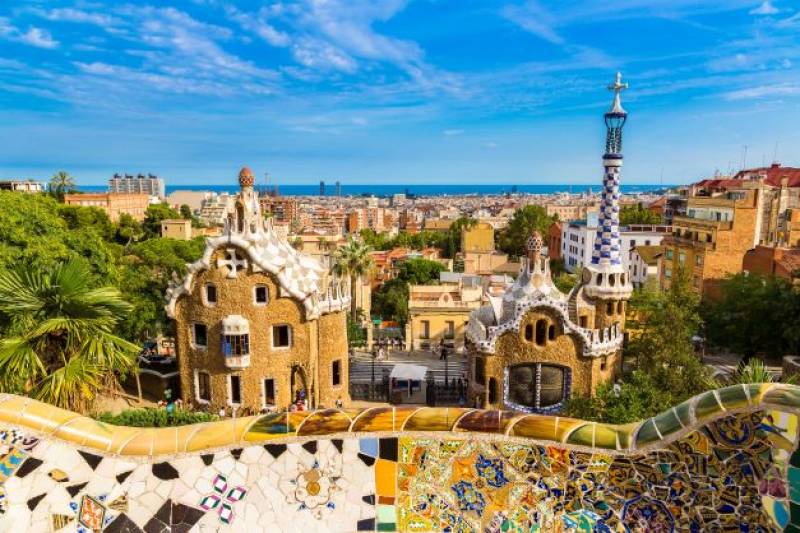
Where do you have to pay tourist tax 2022?

Where do you have to pay tourist tax in Spain 2022?

Sign up for the Spanish News Today Editors Roundup Weekly Bulletin and get an email with all the week’s news straight to your inbox Special offer: Subscribe now for 25% off (36.95 euros for 48 Bulletins)
you can sign up to our FREE weekly roundup!
Read some of our recent bulletins:
25% Discount Special Offer subscription: 36.95€ for 48 Editor’s Weekly News Roundup bulletins! Please CLICK THE BUTTON to subscribe.
(List price 3 months 12 Bulletins)
Read more stories from around Spain:

To be listed on the CAMPOSOL TODAY MAP please call +34 968 018 268.

To be listed on the CONDADO TODAY MAP please call +34 968 018 268.
Guidelines for submitting articles to camposol today.
Hello, and thank you for choosing CamposolToday.com to publicise your organisation’s info or event.
Camposol Today is a website set up by Murcia Today specifically for residents of the urbanisation in Southwest Murcia, providing news and information on what’s happening in the local area, which is the largest English-speaking expat area in the Region of Murcia.
When submitting text to be included on Camposol Today, please abide by the following guidelines so we can upload your article as swiftly as possible:
Send an email to [email protected] or [email protected]
Attach the information in a Word Document or Google Doc
Include all relevant points, including:
Who is the organisation running the event?
Where is it happening?
How much does it cost?
Is it necessary to book beforehand, or can people just show up on the day?
…but try not to exceed 300 words
Also attach a photo to illustrate your article, no more than 100kb

Gran Canaria in November
- Tourist tax in Cape Verde. Climate fee –...
- Gran Canaria – vacation reviews. Is it worth...
- May vacation – best Places to Visit in...

- Dominican Republic
- Canary Islands
- United Arab Emirates
- Where to go?
Benqu News & Blog WordPress Theme

Tourist tax in Cape Verde. Climate

Gran Canaria – vacation reviews. Is

May vacation – best Places to
Makuszyńskiego 99B, 42-208 Częstochowa
Tourist tax in Spain
- BY Simon Machniewski
- 1.32K Views

When you go on vacation to Spain, you have to expect to pay a tourist tax. Such fees have to do with too much tourist traffic – Spain is very popular, which drives the national economy, but also generates numerous problems. Not everywhere in Spain has to pay such a tax, but more destinations already have it in their plans.
Spis treści:
Where do you have to pay the tourist tax in Spain?
The tourist tax was the first to be introduced by Barcelona, as visitors to that city have had to pay the extra fee since 2012. The tourist tax operates throughout the Catalonia region, with fees outside of Barcelona being quite a bit lower, although increases are planned in the near future. In 2016, the Balearic Islands of Mallorca, Menorca, Ibiza and Formentera opted for the tourist tax. The general rule is that the higher the standard of the hotel, the higher the fee. The tax, by the way, is levied not only on hotel stays, but also on campers, hostels, guesthouses, apartments rented through Airbnb. Tourist cruise participants also have to pay the tax. Post-season fees are quite a bit lower.
In late 2023 and early 2024, the tourist fee is expected to be introduced in the Valencia region, which also includes such popular tourist destinations as Alicante and Benidorm. The introduction of a new tourist tax is being considered in Madrid, southern Andalusia, northern Galicia, and San Sebastian.

How much is the tourist tax in Spain?
The high tourist season in Spain is between May 1 and October 31. The low season is from November 1 to April 30. A 50 percent reduction applies to stays longer than nine days – lower rates are charged from the tenth day onward. The tourist tax does not apply to children under the age of 16.
Tourist tax per day of stay is (amount in high season / low season):
Balearic islands:.
– camping 1 euro / 0.25 euro
– cruises 2 euros / 0.50 euros
– hotels up to 3 stars 2 euros / 0.75 euros
– four-star hotels 3 euros / 1 euro
– five-star hotels 4 euros / 1 euro
Barcelona (one rate all year round):
– hostels, camping, low-standard accommodations €3.75
– cruise passengers 5.75 euros (longer stay 4.75 euros)
– apartments and houses for tourists (e.g. Airbnb) 5 euros
– four-star hotels 5.5 euros
– five-star hotels 6.25 euros
Catalonia (one rate all year round):
– hostels, camping, low-standard accommodations 0.60 euros
– cruise passengers 3 euros (longer stay 2 euros)
– apartments and houses for tourists (e.g., Airbnb) 1 euro
– four-star hotels 1.20 euros
– five-star hotels 3 euros
Valencia (one rate all year round):
– low-standard accommodations 0.50 euros
– five-star hotels 2 euros
Children under the age of 16 are exempt.

Gran Canaria tourist tax
Mallorca – pros and cons.

- Simon Machniewski
About Author
Traveler and owner of a small marketing agency.
You may also like

Tourist tax in Italy

How to get from Dubai to Abu Dhabi and back?
Barcelona is increasing its tourist tax next week - here’s how much you’ll have to pay from April
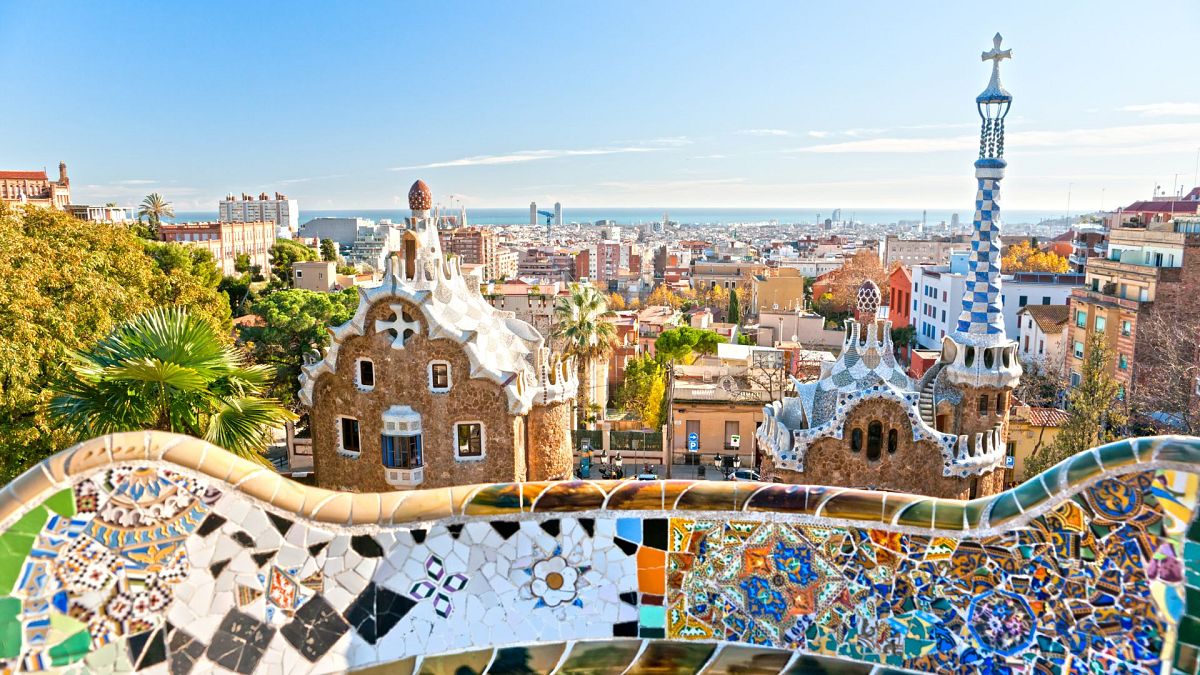
The Spanish city first introduced an extra tourist tax in 2012 to attract ‘quality’ tourism.
Barcelona’s tourist tax is set to rise once again on 1 April.
Since 2012, the visitor hotspot has added an extra fee on top of the region-wide tourist tax.
In 2022, city authorities announced that the fee would be increased over the next two years.
The city’s surcharge varies depending on the type of visitor accommodation and is only levied on official tourist lodging.
Barcelona is Spain ’s most visited city and continues to struggle with overtourism.
How much is Barcelona’s tourist tax?
Visitors to Barcelona have to pay both the regional tourist tax and the city-wide surcharge.
The regional tax varies depending on the type of accommodation you are staying in. For four-star hotels it is €1.70, for rental accommodation like Airbnb it is €2.25, and for five-star and luxury hotels it is €3.50.
Cruise passengers spending less than 12 hours in the city pay €3 to the region, while those spending more than 12 hours pay €2.
The city tax, which applies to a maximum seven-night stay, has been steadily increasing. In April 2023, it rose from €1.75 to €2.75 for all types of stay. From April 2024, it will increase once again to €3.25.
What does that mean for accommodation prices in Barcelona in 2024?
As of 1 April 2024, visitors to Barcelona will have to pay €3.25 to the city on top of the regional tourist tax - an increase of €0.50 per night.
That means guests in five-star accommodation will pay a total of €6.75 per night - €47.25 per person for a week’s stay.
In rental accommodation, the fees add up to €5.50 per night or €38.50 for a week-long stay, on top of the nightly cost of the accommodation.
Cruise day-trippers will pay €6.25. The idea behind this is to encourage “quality” tourism over big numbers, according to the city mayor.
- Plaza de España: Seville’s plan to charge entry fee for iconic square sparks backlash
- Spain’s digital nomad visa one year on: How are remote workers and locals getting along?
Why does Barcelona have a tourist tax?
Barcelona’s authorities have said the increased tourist tax aims to attract ‘quality’ tourism over big visitor numbers.
The city sees an average of 32 million visitors a year, many of whom arrive on cruise ships.
In 2022, the Catalan capital launched new measures to curb disruption from guided tours including noise restrictions and one-way systems.
The hike in the tourist tax, which is divided between Barcelona ’s Generalitat and the City Council, will also bolster the city’s budget.
- Overtourism: From Venice to Marseilles, here’s how European travel hotspots are tackling overtourism
Authorities hope the fee will bring in as much as €100 million in 2024.
“The economic data for tourism in 2019 is already increasing, not in the number of tourists, but in the amount of income from tourism in Barcelona,” deputy mayor Jaume Collboni said.
“It was the objective sought: to contain the number of tourists and increase tourist income because our model is no longer mass tourism but quality tourism, which adds value to the city.”
The council said the proceeds would be used to fund the city’s infrastructure, including improvements to roads, bus services and escalators.
What other Spanish cities have a tourist tax?
Barcelona isn’t the only tourist hot spot in Spain taxing visitors to cope with their impact.
The Balearic Islands (Mallorca, Menorca, Ibiza , Formentera), charges a nightly fee of €1-4 for each holidaymaker aged 16. Known as the Sustainable Tourism Tax, it is used to promote better tourism practices and conserve the islands’ nature.
Valencia planned to introduce a similar measure at the end of last year, but it was scrapped following the 2023 elections. It would have seen travellers pay between 50 cents and €2 per night for up to seven nights.
You might also like
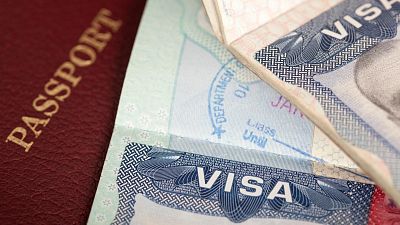
What are ‘golden visas’ and which EU countries still hand them out?
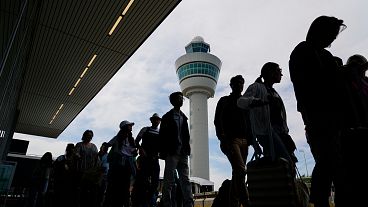
How do airlines think the EES launch will impact passengers?

French air traffic controllers set to strike again next week

Find out what you really need to know, plus easily compare prices from hundreds of deals, no matter what insurance you need.
Our Top Picks
- Cheap Car Insurance
- Best, Largest Car Insurance Companies
- Cheap Motorcycle Insurance
- Cheap Home Insurance
- Cheap Moped Insurance
- Best Cheap Cruise Insurance
- Best Pet Insurance
- Best Insurance for Bulldogs
- Best Travel Insurance
- Pet Insurance
- Home Insurance
- Travel Insurance
- Car Insurance
- Motorcycle Insurance
- Caravan & Motorhome Insurance
- Campervan Insurance
- Health Insurance
- Van Insurance
Solar Panels
Get solar panels for your home.
- Best Solar Panels
- Solar Panel Installers
- Solar Panels for Home
- Solar Panel Comparison
- Solar Panel Installation
- Solar Panel Battery
The Financial Aspects
- Solar Panel Costs
- Solar Panel Grants
- Solar Panel Quotes
- Solar Panel Tariffs
Business Insurance
Find the best insurance deals for you and discover what you need to know, whatever your business.
Popular Types of Cover
- Public Liability Insurance
- Employers' Liability Insurance
- Professional Indemnity
- Directors and Officers
- Fleet Insurance
- Best Business Insurance Companies
- Guide to Small Business Insurance
- How Much Does Business Insurance Cost?
- Business Loans
By Type of Business
- Limited Company Insurance
- Self Employed Insurance
By Occupation
- Click for insurance by occupation!
Credit Cards
Read reviews and guides to get clarity over credit cards and see which is best for you.
Credit Card Categories
- Credit Builder Cards for Bad Credit
- Rewards Credit Cards
- Travel Credit Cards
- 0% Interest Credit Cards
- No Foreign Transaction Fee Credit Cards
- Balance Transfer Credit Cards
- Cashback Credit Cards
- Credit Cards with No Annual Fee
- Student Credit Cards
Helping you make the most of your money with our in-depth research on the topics that matter to you.
Stay up to date with the latest news that affects you.
Come say hi!
Connect with NimbleFins
- Follow NimbleFins on LinkedIn
The guidance on this site is based on our own analysis and is meant to help you identify options and narrow down your choices. We do not advise or tell you which product to buy; undertake your own due diligence before entering into any agreement. Read our full disclosure here .
Spain tourist tax - how much is tourist tax for Majorca, Benidorm, Barcelona and more
Tourist tax in Spain is a controversial topic among hoteliers and visitors, but something there is no getting away from if you choose to travel to the country's most popular holiday spots.
The decision to charge a levy is left up to local authorities, meaning those that do charge the tax can have different rates and eligibility.
Compare Cheap Travel Insurance
Save money on your holiday insurance today. Quick quotes from 20 insurers.
Although the majority of the country is tourist tax-free, some of the most popular areas of Spain now charge a fee for tourists to help pay for infrastructure, resources, amenities and even to reduce the number of visitors at peak times. A family of four could face paying an additional €175 for a week away to the most expensive destinations. This, along with essentials like travel insurance and luggage , could quickly make a cheap deal look much more pricey.
Currently, Majorca, Menorca, Ibiza, Formentera and some parts of Catalonia (including Barcelona) charge a tourist tax. Valencia (which includes Benidorm) is due to launch its tourist tax in December 2023.
Madrid has also discussed the introduction of a tariff on numerous occasions but has not yet implemented one. Parts of Andalusia, such as Seville, Granada and Malaga, have also expressed interest in introducing a tourist tax, while northern regions Galicia and San Sebastian are also considering introducing a charge.
Each area charges the tax slightly differently, which we’ve broken down for you below. Or use our Spain tourist tax calculator to see what you'll need to pay.
Tourist tax for Majorca, Ibiza, Menorca, Formentera (Balearic Islands)
Tourist tax for barcelona, tourist tax for catalonia, tourist tax for benidorm and valencia, spain tourist tax for airbnb stays, spain tourist tax calculator, spain tourist tax.
The Balearic Islands has charged a tourist tax covering all islands on the archipelago – Majorca, Ibiza, Menorca and Formentera - since 2016, in a bid to make tourism more sustainable and preserve the environment.
The cost for each visitor is between €1-€4 per night depending on the type of accommodation they are staying in, with those in the most luxurious hotels paying the most.
Campers and those staying in hostels or lodgings pay €1 a day, cruise passengers (no matter the length of their visit) and those in budget hotels and apartments up to 3 stars pay €2, mid-range accommodation visitors pay €3, and luxury hotel guests pay €4 a day.
Rates more than halve during low season between November 1 and April 30.
They are: Hostel dwellers and campers pay 25 cents a day, cruise passengers and budget hotel and apartment guests up to 3 stars pay 50 cents, 3 star 'superior' and 4 star hotels charge 75 cents and 4 star 'superior' and five star luxury hotels charge €1.
Children under 16 are exempt. Those staying longer will have a 50% discount applied starting on the ninth day of staying at the same accommodation.
Barcelona charges visitors between €3.75 and €6.25 a night depending on the type of accommodation they are staying in.
Some of the money goes to the Catalonia region with the rest going to the city. The prices are due to go up steadily over the next few years as the city authority raises its fee. The first rise came into force on April 1 2023.
Currently, those in hotels and apartments up to four stars pay €5.50 a night. This goes up to €6.25 for those in five star hotels.
Housing for tourist use, such as Airbnb are charged €5 a night with other, lower-ranked establishments costing €3.75 a night.
Cruise passengers must pay €5.75 to enter the city, or €4.75 if spending more than 12 hours there.
From April 1 2024, the Barcelona city surcharge will increase again by 50 cents a night.
Children under 16 are exempt from the tourist tax in Barcelona.
Outside of Barcelona, the rest of Catalonia charges tourist tax. Because this is only collected by the regional authority, this is cheaper than Barcelona but can still add up for a family staying for a week.
The charge is between €0.60 and €3 a night, again depending on the type of accommodation.
Those in a 5-star hotel are charged €3, dropping to €1.20 for those in 4-star hotels and apartments.
So-called 'housing for tourist use' such as an Airbnb, costs €1 a night, with other establishments costing €0.60.
Cruise ship passengers staying less than 12 hours must pay €3, with the price dropping to €2 for those staying more than 12 hours.
Children under 16 are exempt from the tourist tax in Catalonia.
The Valencia region, which includes Benidorm, Alicante and Valencia city itself, will allow a tourist tax to be charged from the end of 2023 or start of 2024.
The charges will be between 50 cents and €2 a night, depending on the type of accommodation.
A 50 cents charge can be imposed on campers and €2 for hotel and apartment stays. Cruise passengers will also have to pay, although the amount is not clear.
However, after much frustration from local authorities, the region agreed the levy would be voluntary rather than mandatory.
As of April 2023, almost all authorities including Alicante, Benidorm and Torrevieja have said they will not enforce the tax. Only Valencia city itself appears to be on board with the charge. However, there is no guarantee things will remain this way.
In fact, local reports suggest the tax could be scrapped completely following the election of new president of the Generalitat, Carlos Mazón.
Under the Valencia region's rules, if the tax did come into force, children under 16, disabled people and those in the area for a university event would be exempt.
Protect your holiday today. Quick quotes from 20 insurers.
Holidaymakers booking through Airbnb must also pay a tourist tax when visiting the areas of Spain that have introduced the charge.
This is not always included in the price quoted for an accommodation, and Airbnb cannot currently collect this money on behalf of the local authorities in Spain. However, it is in talks to make this happen.
As such, the tourist tax in Spain is usually paid for on arrival or via a third party.
Airbnb already collects tourist tax for European countries including Germany, France, Italy, Portugal and the Netherlands.
Want to quickly calculate how much Spain tourist tax you'll owe? Enter a few details into our Spain tourist tax calculator below and get an instant estimate:
Here are all the Spain tourist tax charges as of April 1 2023:
*Benidorm, along with the whole of the Valencia region, can charge the same, but has so far said it will not be charging tourists.
- Hand luggage size rules for easyJet, Ryanair, Jet2, TUI and more 2023
- 5 tips for finding cheap flights
- Which Companies Provide Cheap Travel Insurance Quotes?
- 4.8 out of 5 stars**
- Quotes from 20 providers
Our Top Insurance Picks
- Cheap Travel Insurance
Cheap Travel Insurance by Destination
- Travel Insurance to Australia
- Travel Insurance to Ireland
- Travel Insurance to Canada
- Travel Insurance to Turkey
- Travel Insurance to India
Articles on Travel Insurance Costs
- Average Cost of Travel Insurance
- Average Cost of Travel Insurance to USA
- Cost of Travel Insurance with Pre-Existing Medical Conditions
- Average Cost of Travel Insurance to India
- Average Cost of Travel Insurance to Ireland
Recent Articles on Travel Insurance
- Travel Insurance with Optional Gadget Cover
- Top Tips for Travel Insurance with Medical Conditions
- Can Travel Insurance Help if Natural Disaster Strikes?
- Should You Buy Travel Insurance from a Comparison Site?
- Should You Buy Single-Trip or Annual Multi-Trip Travel Insurance?
Travel Insurance Guides
- Do I Need Travel Insurance? 3 Key Questions
- Will Your Travel Insurance Claim be Rejected? Boost Your Odds with These Tips
- 7 Things Your Travel Insurance May Not Cover
- Travel Insurance Guide
Travel Insurance Reviews
- AA Travel Insurance Review
- Admiral Travel Insurance Review
- Aviva Travel Insurance Review
- AXA Travel Insurance Review
- Cedar Tree Travel Insurance Review
- CoverForYou Travel Insurance Review
- Coverwise Travel Insurance Review
- Debenhams Travel Insurance Review
- Direct Line Travel Insurance Review
- Holidaysafe Travel Insurance Review
- Insure & Go Travel Insurance Review
- Sainsbury's Bank Travel Insurance Review
- Tesco Travel Insurance Review
- Travelinsurance.co.uk Travel Insurance Review
- Zurich Travel Insurance Review
Reviews of Travel Insurance for Pre-Existing Conditions
- Fit2Travel Travel Insurance Review
- Free Spirit Travel Insurance Review
- goodtogoinsurance.com Review
- JustTravelcover.com Insurance Review
- OK To Travel Insurance Review
- Saga Travel Insurance Review
- Virgin Money Travel Insurance Review
- Privacy Policy
- Terms & Conditions
- Editorial Guidelines
- How This Site Works
- Cookie Policy
- Copyright © 2024 NimbleFins
Advertiser Disclosure : NimbleFins is authorised and regulated by the Financial Conduct Authority (FCA), FCA FRN 797621. NimbleFins is a research and data-driven personal finance site. Reviews that appear on this site are based on our own analysis and opinion, with a focus on product features and prices, not service. Some offers that appear on this website are from companies from which NimbleFins receives compensation. This compensation may impact how and where offers appear on this site (for example, the order in which they appear). For more information please see our Advertiser Disclosure . The site may not review or include all companies or all available products. While we use our best endeavours to be comprehensive and up to date with product info, prices and terms may change after we publish, so always check details with the provider. Consumers should ensure they undertake their own due diligence before entering into any agreement.
Note regarding savings figures: *For information on the latest saving figures, pay-less-than figures, and pay-from figures used for promotional purposes, please click here .
**4.8 out of 5 stars on Reviews.co.uk is the rating for our insurance comparison partner, QuoteZone.

- Living in Barcelona
- Good to know
Tourist Tax in Barcelona – WHY, FOR WHO and WHAT IS IT?
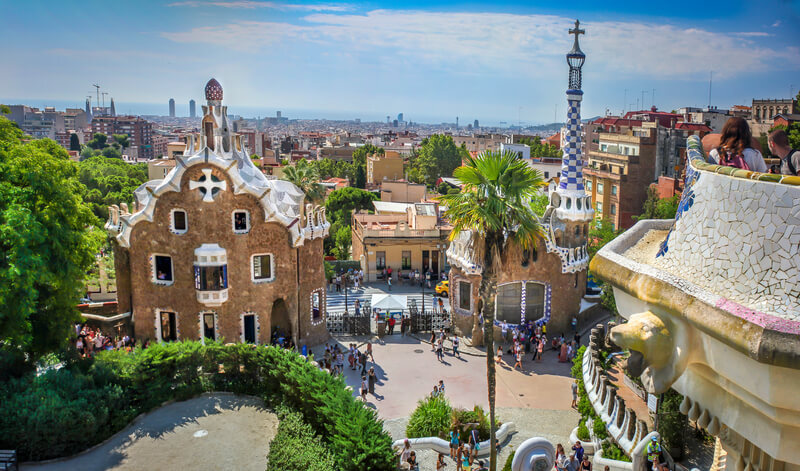
Tourist tax in Barcelona is one of the most controversial topics to talk about when it concerns your holiday destination, and this tax is still something we have to get used to. The tax measure came into effect in Catalonia in 2012, and it is still in force today.
Any tourist rental property must apply this tax and add it to its tourist rent, and subsequently it must be paid to the city council. In this article we will explain more on tourist tax in Barcelona, and whether you are a tourist or rental property owner, we hope to take away any doubts or questions on the subject.
Table of Contents
Tourist tax in Catalonia
First and foremost, you must be aware that Barcelona levies a tourist tax, and the main reason for this is that the autonomous community of Catalonia has a tax for all tourist accommodations in the region.
The hight of the tax depends on the type of accommodation your are staying in and the location of the accommodation, and the fee is therefore different in Barcelona compared to the rest of Catalonia. The name of the tourist tax is officially Impuesto sobre las Estancias en Establecimientos Turísticos (or IEET).

What does tourist tax in Barcelona mean?
Barcelona’s tourist tax is an extra tax levied on your stay in a tourist accommodation, but only in the city of Barcelona. Prices vary depending on the type of your chosen accommodation.
The tax is, however, limited to a maximum of seven days per person , and the stay must be in the same accommodation and without any interruption.
Children under the age of 16 are exempt from paying this tourist tax.
Related article: Free Tours in Barcelona; Discover The City’s Secrets
How much tourist tax must be paid in Barcelona?
As of April 1, 2024, tourist tax in Barcelona is as shown in the table below.
Source: GENCAT
As of April 1, 2024, the surcharge by Barcelona City will be 3,25€.
Who pays this tourist tax?
Tourist taxes must be included and shown in the price that is paid by guests. The amount must be mentioned clearly on the invoice. The cost of the accommodation must be stated, and the amount of the tourist tax must be clarified separately. It must include the number of days and the tax code of the type of accommodation.

Pay tourist tax in Barcelona
How and when must tourist tax be settled with the administration?
The tourist tax in Barcelona (or any other Catalan town) must be settled online with the Agència Tributària de Catalunya . Tourist tax must be declared and paid every six months , and at the start of every half year you will get 20 days to complete the declaration and payment process.
Tourist tax is levied on customers and guests , but it is ultimately up to the owner of the accommodation to comply with tax regulations and submit corresponding taxes.
Hopefully we have been able to answer all of your questions on tourist tax in Barcelona in 2024. If we haven’t, don’t hesitate and contact ShBarcelona . We are here to help you any way we can.
You may also like

The Best Outdoor Plants For Your Terrace

Find a pet-sitter in Barcelona

Barcelona Wedding Photographers

Careers to start from home

24-Hour Stores in Barcelona

Where to buy men’s Jeans in Barcelona

Tinder and Other Ways to Find Love in Barcelona

Pickpockets in Barcelona: Watch Your Pockets!

Where to Find Doulas in Barcelona

Top 4 free things to do in Barcelona
About the author.
Daniella enjoys everything the city of Barcelona has to offer. She writes, translates and loves discovering Catalonia and its beautiful nature.
So what you are saying is an Airbnb host may not demand an extra cash charge not listed in the total invoice?
What an unwelcoming way to greet new tourists to your country. I paid the most I’ve ever paid for accommodations for my family to stay in an Airbnb in Barcelona. After the final payment has gone through, I realize that I will have to pay an extra 150 euros for my family for 5 nights. That’s simply outrageous. A couple dollars a night is one thing, but I’ve never heard of such a gauging tax. Leaves a bitter taste in my mouth regarding ever coming back here again.
Where I can find a territory of Barcelona tax fee? I want to book the property in the nearest place to avoid this tax. And what does it mean “he stay must be in the same accommodation and without any interruption.”? I can`t change my accommodation during 7 days stay?
Leave a Comment X

- Privacy Overview
- Strictly Necessary Cookies
- 3rd Party Cookies
This website uses cookies so that we can provide you with the best user experience possible. Cookie information is stored in your browser and performs functions such as recognising you when you return to our website and helping our team to understand which sections of the website you find most interesting and useful.
Strictly Necessary Cookie should be enabled at all times so that we can save your preferences for cookie settings.
If you disable this cookie, we will not be able to save your preferences. This means that every time you visit this website you will need to enable or disable cookies again.
This website uses Google Analytics to collect anonymous information such as the number of visitors to the site, and the most popular pages.
Keeping this cookie enabled helps us to improve our website.
Please enable Strictly Necessary Cookies first so that we can save your preferences!
This popular European city is the latest to increase its tourist tax to battle overtourism

Barcelona is the latest European city to increase its city-wide tourist tax, a slight increase of €0.50 (about $0.53) per night, as the city seeks to curb overtourism.
The new price of €3.25 (about $3.45) was implemented on April 1 as part of the Stays in Tourist Establishments Tax . The bylaw was introduced in 2021, when the tourist tax was €0.75 (around $0.80) per night, and gradually increased the tax each year through 2024. Now, if someone is staying in Barcelona for seven nights, the new total tax amount will be €22.75 (around $24).
“It was the objective sought: to contain the number of tourists and increase tourist income because our model is no longer mass tourism but quality tourism, which adds value to the city,” deputy mayor Jaume Collboni said in March, according to Euronews .
The tax is added to a tourist’s accommodations bill when they stay at official tourist establishments in the city. The money goes toward enhancing the city’s infrastructure, such as improving roads.
Other popular European destinations, such as Amsterdam and Venice, also recently increased tourist taxes for similar reasons.
Learn more: Best travel insurance
Are tourist taxes the future of travel? What to know about the increasing tourist fees worldwide.
“The new and increasing tourist fees across Europe allow cities to fund measures to attract more vacationers, support the local infrastructure and businesses, as well as preventing damages from overtourism,” Tiffany Mealiff, a travel insurance expert at Quotezone , said in a statement to USA TODAY.
However, Barcelona visitors have had to pay a regional tourist tax since 2012, according to Euronews . This tax amount depends on a traveler’s accommodation type, costing more if someone is staying at a luxury hotel than an Airbnb.
Barcelona continues to reign as Spain’s most popular tourist destination. In 2022, Barcelona welcomed 9.7 million tourists , just slightly below pre-pandemic levels in 2019, according to the Barcelona City Council. However, tourists were found to be staying in the city longer than in 2019.
In 2022, the city also sought to cap the number of people in a tour group and ban megaphones by tour guides in an effort to curb the disruptive effects of overtourism.
Travelers planning their European getaway should be mindful of the additional costs that “are often not obvious beforehand,” according to Mealiff, as they plan their trip budgets.
Kathleen Wong is a travel reporter for USA TODAY based in Hawaii. You can reach her at [email protected] .
Winter is here! Check out the winter wonderlands at these 5 amazing winter destinations in Montana
- Travel Destinations
How Much Is The Tourist Tax In Spain
Published: November 7, 2023
Modified: December 28, 2023
by Nettle Weintraub
- Hotel Reviews
- Plan Your Trip
Introduction
Spain, with its rich history, vibrant culture, and stunning landscapes, is one of the most popular tourist destinations in the world. Each year, millions of visitors flock to this enchanting country to explore its historic cities, relax on its beautiful beaches, and indulge in its delectable cuisine. However, like many other tourist destinations, Spain has implemented a tourist tax to help fund local infrastructure and support sustainable tourism initiatives.
A tourist tax, also known as a bed tax or city tax, is a fee imposed on visitors to a particular location. It is typically collected by hotels, rental accommodations, or tourist establishments on behalf of the local government. The revenue generated from the tourist tax is used to maintain and improve tourist facilities, preserve cultural heritage sites, and support environmental initiatives.
In Spain, the tourist tax system varies from region to region, with each autonomous community having the authority to determine its own tax rates and regulations. While some regions have implemented a flat-rate fee, others have adopted a tiered system based on factors such as accommodation type, duration of stay, and peak tourism seasons.
In this article, we will provide an overview of the tourist tax in Spain, explore the different types of taxes implemented across the country, and delve into the specifics of how the tax is collected. We will also discuss the exemptions and discounts available to certain travelers, as well as the impact of the tourist tax on tourism in Spain. Lastly, we will compare the tourist taxes imposed by different regions in Spain to give you a comprehensive understanding of the variations in rates and regulations.
So, if you’re planning a trip to Spain and want to know how much you might be charged for the tourist tax, or if you’re simply curious about the intricacies of this system, read on to discover everything you need to know about the tourist tax in Spain.
What is a tourist tax?
A tourist tax, also known as a bed tax or city tax, is a fee imposed on visitors to a particular location. It is a way for local governments to generate additional revenue from tourism and support the maintenance and development of tourist facilities and services.
The concept of a tourist tax is not unique to Spain but is implemented in various countries and regions around the world. The tax amount and collection methods may vary depending on the destination. In some cases, the tax is included in the overall cost of accommodation, while in others, it is collected separately by hotels, rental accommodations, or tourist establishments on behalf of the local authorities.
Typically, the revenue generated from the tourist tax is used to fund projects that directly benefit tourists and the local community. This can include infrastructure improvements, the preservation of cultural heritage sites, environmental conservation efforts, and the development of tourist services and attractions.
While the primary purpose of a tourist tax is to generate revenue, it also serves as a way to manage the impact of tourism on local resources and infrastructure. By implementing a tax, destination authorities can ensure that visitors contribute to the cost of maintaining and enhancing the tourism experience, rather than placing an excessive burden on the local community.
It’s important to note that a tourist tax is separate from other fees or taxes, such as Value Added Tax (VAT), which are applicable to goods and services. The tourist tax is specifically targeted towards visitors and is intended to offset the costs associated with tourism.
Overall, the implementation of a tourist tax allows destinations to balance the economic benefits of tourism with the need for sustainable development and the preservation of cultural and natural resources. It helps create a more equitable tourism system where visitors contribute to the maintenance and improvement of the destinations they enjoy.
Overview of the tourist tax in Spain
In Spain, the tourist tax system is decentralized, with each autonomous community having the authority to regulate and implement its own tax. This means that the tax rates and regulations can vary from region to region.
The primary objective of the tourist tax in Spain is to support sustainable tourism and the development and maintenance of tourist infrastructure. The revenue generated from the tax is used to fund initiatives such as environmental conservation, cultural preservation, and the improvement of tourist services and facilities.
The tourist tax in Spain is typically charged per person, per night of stay, and is applicable to various types of accommodation, including hotels, vacation rentals, campsites, and hostels. Some regions have additional taxes or fees for specific types of accommodation, such as luxury hotels or rural houses.
The specific rates of the tourist tax in Spain can vary depending on factors such as the region, the type of accommodation, and the seasonality of tourism. Generally, the tax rates range from a few cents to a few euros per person, per night.
In addition to the standard tourist tax, certain regions in Spain have implemented special taxes or fees for specific activities or attractions. For example, in Catalonia, there is a tourist tax on cruise ship passengers and a tax on day visitors to certain tourist areas.
It’s important for travelers to be aware of the tourist tax in the specific region they are visiting and to factor it into their travel budget. The tax is typically payable upon check-in or check-out, depending on the accommodation provider’s policies.
Overall, the tourist tax in Spain serves as a means to support sustainable tourism development and ensure that visitors contribute to the preservation and enhancement of the destinations they enjoy. By implementing the tax, Spain aims to strike a balance between the economic benefits of tourism and the need for responsible and sustainable tourism practices.
Types of tourist taxes in Spain
Spain has implemented various types of tourist taxes that differ based on the region and the specific regulations set by each autonomous community. Here are some of the common types of tourist taxes you may encounter when visiting Spain:
- Stay-based tax: This is the most common type of tourist tax in Spain. It is charged per person, per night of stay, and is applicable to various types of accommodations such as hotels, vacation rentals, hostels, and campsites. The tax rate can vary depending on factors such as the region, the type of accommodation, and the seasonality of tourism.
- Special taxes: In addition to the stay-based tax, certain regions in Spain have implemented special taxes or fees for specific activities or attractions. For example, in Catalonia, there is a tourist tax on cruise ship passengers and a tax on day visitors to certain tourist areas. These additional taxes are intended to generate revenue from specific tourist-related activities and contribute to the maintenance and development of the region’s tourism infrastructure.
- Additional accommodation fees: Some regions in Spain have introduced additional fees on top of the standard tourist tax for specific types of accommodations. For example, luxury hotels or rural houses may be subject to higher tax rates compared to other types of lodging. These additional fees are often used to support the improvement and maintenance of higher-end tourism facilities.
- Transportation taxes: While not directly considered tourist taxes, certain transport services in Spain may include additional fees or taxes that are applicable to both residents and visitors. For example, there may be environmental taxes or surcharges on flights or rental cars, which contribute to sustainable tourism initiatives or environmental conservation efforts.
It’s important to note that the specific types of tourist taxes and their rates can vary significantly depending on the region you are visiting in Spain. It is recommended to check the official tourism websites or consult with your accommodation provider to understand the applicable taxes and fees in your chosen destination.
By implementing these diverse types of tourist taxes, Spain aims to generate revenue to support sustainable tourism development and ensure that visitors contribute to the preservation and enhancement of the destinations they enjoy.
How much is the tourist tax in Spain?
The exact amount of the tourist tax in Spain varies depending on the region, the type of accommodation, and the seasonality of tourism. Each autonomous community has the authority to set its own tax rates and regulations. Here is a general overview of the tourist tax rates you may encounter when visiting Spain:
- Stay-based tax: The majority of regions charge a tourist tax per person, per night of stay. The rates can range from a few cents to a few euros per person, per night. The specific rate is determined by the regional government and can be influenced by factors such as the type of accommodation and the tourism season. For example, during peak seasons or in popular tourist areas, the tax rate may be higher.
- Higher-end accommodations: Some regions may have higher tax rates for luxury hotels or upscale accommodations. These establishments may be subject to an additional fee on top of the standard tourist tax. The aim is to generate more revenue from higher-end tourism and contribute to the maintenance and improvement of premium tourism facilities.
- Special taxes and fees: In certain regions, there are special taxes or fees for specific activities or attractions. For instance, cruise ship passengers may be required to pay a separate tourist tax, or there may be taxes on day visitors to certain tourist areas. The rates for these special taxes can vary, so it is advisable to check the specific regulations of the region you plan to visit.
To get accurate information about the tourist tax rates in your desired destination, it is recommended to check the official tourism websites, consult with your accommodation provider, or contact the local tourism authorities. They will be able to provide the most up-to-date information regarding the applicable rates and any discounts or exemptions that may apply.
Keep in mind that the tourist tax is usually payable upon check-in or check-out, depending on the policies of the accommodation provider. It is important to factor in the tourist tax when budgeting for your trip to Spain to ensure you have a clear understanding of the overall costs associated with your stay.
By charging the tourist tax, Spain aims to generate revenue to support sustainable tourism initiatives and maintain and enhance the tourist infrastructure, ensuring a positive and enjoyable experience for visitors.
Exemptions and Discounts for the Tourist Tax
While the tourist tax is generally applicable to all visitors staying in tourist accommodations in Spain, there are certain exemptions and discounts that travelers may be eligible for. These exemptions and discounts aim to provide relief for specific groups or circumstances. Here are some common exemptions and discounts for the tourist tax:
- Children and minors: Many regions in Spain exempt children and minors from the tourist tax or offer discounted rates. The specific age limit and conditions may vary, so it’s important to check the regulations of the region you are visiting. Typically, children under a certain age (e.g., 16 or 18) may be exempt from the tax, while those between certain age brackets may be eligible for a reduced rate.
- Long-term stays: Some regions may offer discounts for stays that exceed a certain number of nights. For example, if you are planning a long-term stay, such as staying for more than seven or 15 nights, you may be eligible for a reduced tax rate. This encourages visitors to stay longer and contributes to the economic sustainability of the region.
- Off-peak season: In certain regions, there may be discounted rates during the off-peak season. This encourages tourism during quieter periods and helps balance the flow of visitors throughout the year. The specific off-peak season and corresponding discount rates may vary depending on the region.
- Residents: Some regions provide exemptions or discounted rates for residents of the autonomous community or municipality. This is to promote local tourism and support the local economy. Proof of residency, such as an identification card or resident certificate, may be required to avail of these exemptions or discounts.
- Special circumstances: Regions may provide exemptions or special rates for individuals with specific circumstances, such as disabled persons, students, or individuals traveling for medical purposes. It is advisable to check the specific regulations of the region you plan to visit to determine if you qualify for any special discounts or exemptions based on your circumstances.
It is important to note that the exemptions and discounts for the tourist tax are determined by the regulations of each autonomous community in Spain. Therefore, they can vary from region to region. It is recommended to consult the official tourism websites, contact the local tourism authorities, or inquire with your accommodation provider to determine if you qualify for any exemptions or discounts and to understand the necessary requirements.
By providing exemptions and discounts, Spain aims to ensure a fair and equitable tourism tax system while also encouraging specific segments of travelers and supporting the local economy.
How is the tourist tax collected in Spain?
The collection of the tourist tax in Spain is typically done by the accommodation providers on behalf of the local government or municipality. Here is an overview of how the tourist tax is collected in Spain:
- Accommodation providers: Hotels, vacation rentals, hostels, campsites, and other types of accommodations are responsible for collecting the tourist tax from their guests. The tax is included in the overall cost of the accommodation or collected separately as an additional fee. It is important to note that each accommodation provider may have its own policies and procedures for collecting the tax.
- Invoice or receipt: Upon payment or check-in, the accommodation provider will provide an invoice or receipt that includes the breakdown of the charges, including the tourist tax amount. This allows guests to have a clear understanding of the taxes they are being charged for their stay.
- Payment at check-in or check-out: The tourist tax is typically payable at the time of check-in or check-out, depending on the policies of the accommodation provider. Some establishments may prefer to collect the tax upfront during check-in, while others may include it in the final bill at check-out. It is advisable to inquire about the payment process and timing during the reservation or upon arrival.
- Tax rates and calculation: The tax rates and calculation methods vary depending on the region and the specific regulations set by each autonomous community. In most cases, the rates are determined per person, per night of stay. The establishment will calculate the tax amount based on the number of nights and the number of guests occupying the accommodation.
- Reporting and remittance: Accommodation providers are required to report and remit the collected tourist tax to the local government or municipality as per the regulations. This ensures that the revenue generated from the tax is properly accounted for and used for the designated tourism-related initiatives.
It is important for travelers to be aware of the tourist tax and its collection process to avoid any confusion during check-in or check-out. It is recommended to review the reservation details, including the tax information, and to keep copies of the invoices or receipts for reference.
By entrusting the collection of the tourist tax to the accommodation providers, Spain ensures a systematic and efficient process that allows for the proper administration and utilization of the tax revenue for the benefit of the tourism industry and local communities.
Impact of the tourist tax on tourism in Spain
The implementation of the tourist tax in Spain has both positive and negative impacts on tourism in the country. Here are some key points regarding the impact of the tourist tax:
- Funding tourism initiatives: One of the primary objectives of the tourist tax is to generate revenue to support sustainable tourism initiatives, infrastructure development, cultural preservation, and environmental conservation. The tax revenue plays a vital role in maintaining and improving tourist facilities and services, enhancing the overall tourism experience in Spain.
- Sustainable tourism development: The tourist tax helps to promote sustainable tourism practices and responsible visitor behavior. By charging a fee, it encourages tourists to consider their impact on the local environment and resources. This leads to a more balanced and sustainable approach to tourism, reducing overcrowding in popular areas and promoting the exploration of lesser-known destinations.
- Supporting local economies: The revenue generated from the tourist tax contributes to the local economies of the regions in Spain. It provides funding for small businesses, local artisans, and service providers, strengthening the economic sustainability of the tourism sector at a grassroots level.
- Preservation of cultural heritage: The funds generated from the tourist tax are utilized for the preservation and restoration of cultural heritage sites, monuments, and historical landmarks. This ensures that Spain’s rich cultural heritage is protected and can be enjoyed by both present and future generations of visitors.
- Potential impact on tourism demand: The imposition of a tourist tax can slightly affect the overall cost of a trip, potentially impacting the demand for tourism in certain regions. However, studies suggest that the impact is generally minimal, particularly for popular tourist destinations like Spain, where the demand remains high despite the additional tax burden.
- Perception and visitor satisfaction: Some travelers may view the tourist tax as an additional expense and may be dissatisfied with the concept of paying extra fees. However, if the funds generated from the tax are utilized effectively to enhance the tourism experience, visitors may appreciate the improved facilities and services provided as a result.
It is worth noting that the impact of the tourist tax can vary depending on factors such as the specific region, the tax rates, and the way the revenue is utilized. It is crucial for destinations to strike a balance between generating revenue and ensuring that the tax does not deter visitors or negatively impact the overall tourism experience.
Overall, the tourist tax in Spain plays a significant role in funding sustainable tourism development, preserving cultural heritage, and supporting local economies. By striking a balance between generating revenue and maintaining visitor satisfaction, Spain aims to create a positive and sustainable tourism environment for both travelers and the local communities.
Comparison of Tourist Taxes in Different Regions of Spain
The tourist tax system in Spain is decentralized, with each autonomous community having the authority to set its own tax rates and regulations. This leads to variations in the tourist tax structure across different regions. Here is a comparison of tourist taxes in some prominent regions of Spain:
- Catalonia: Catalonia has a tiered tourist tax system based on the type of accommodation and the seasonality of tourism. The rates range from €0.45 to €2.25 per person, per night, depending on factors such as the accommodation type and location. There is also a separate tourist tax for cruise ship passengers and day visitors to certain areas.
- Balearic Islands: The tourist tax in the Balearic Islands is also tiered based on the type of accommodation and the season. The rates range from €0.25 to €4 per person, per night. The tax is applicable to all visitors aged 16 and over and is higher during the peak tourist season.
- Canary Islands: The Canary Islands do not have a specific tourist tax in place. However, visitors are required to pay the general Value Added Tax (VAT) and other applicable fees on goods and services, including accommodation.
- Andalusia: Andalusia does not have a region-wide tourist tax. However, certain municipalities within the region, such as Malaga and Seville, have implemented their own city taxes for accommodation. The rates and regulations vary depending on the specific municipality.
- Valencia: In the Valencian Community, a tourist tax is not currently in operation. However, some municipalities, including Valencia City, have introduced a municipal tourist tax for specific types of accommodations. The rates and regulations apply to visitors aged 16 and over and may vary in different municipalities.
It is important to note that these are just a few examples, and the tourist tax rates and regulations can vary across other regions of Spain. It is advisable to check the official tourism websites or consult with your accommodation provider to understand the specific tourist tax requirements and rates in the region you plan to visit.
While the variations in tourist taxes can be initially overwhelming, they reflect the autonomous nature of the regions and allow for flexibility based on local needs and tourism demands. The divergent approaches offer a diverse landscape, allowing visitors to choose destinations that align with their preferences and budget.
The tourist tax system in Spain serves as a means to generate revenue for sustainable tourism development and support the maintenance and enhancement of tourist infrastructure. While the specific rates and regulations vary from region to region, the overall objective remains consistent across the country.
By implementing the tourist tax, Spain aims to strike a balance between the economic benefits of tourism and the need for responsible and sustainable tourism practices. The revenue generated from the tax contributes to initiatives such as environmental conservation, cultural preservation, and the improvement of tourist services and facilities.
It is important for travelers to be aware of the tourist tax when planning a trip to Spain and to factor it into their travel budget. Understanding the specific tax rates and any exemptions or discounts that may apply can help visitors better plan their expenses and ensure a smooth check-in or check-out process.
Despite the additional cost, studies suggest that the impact of the tourist tax on tourism demand in Spain is generally minimal. The country’s natural and cultural attractions, coupled with its renowned hospitality, continue to attract millions of visitors each year.
While the tourist tax may be seen as an added expense by some, it ultimately contributes to the sustainability of the tourism sector. The funds generated from the tax are used to maintain and improve tourist facilities, preserve cultural heritage sites, and support local economies.
In conclusion, the tourist tax in Spain serves as a mechanism to support the preservation and development of the remarkable destinations that attract tourists from around the world. By implementing this tax, Spain is able to ensure that tourism remains a sustainable and responsible industry, benefitting both visitors and the local communities for years to come.

- Privacy Overview
- Strictly Necessary Cookies
This website uses cookies so that we can provide you with the best user experience possible. Cookie information is stored in your browser and performs functions such as recognising you when you return to our website and helping our team to understand which sections of the website you find most interesting and useful.
Strictly Necessary Cookie should be enabled at all times so that we can save your preferences for cookie settings.
If you disable this cookie, we will not be able to save your preferences. This means that every time you visit this website you will need to enable or disable cookies again.
Tourist tax Spain 2023: the controversial measure is being considered by Spain’s capital Madrid

It appears that Madrid could follow other Spanish tourist destinations in adopting the controversial tourist tax , which will require visitors to pay an extra charge for each night they spend in the city. Reyes Maroto, former Tourism Minister in Spain and current mayoral candidate in Madrid, has expressed her support for implementing the tax if she is elected. She emphasised that the tax should not just be a means of collecting revenue, but should also benefit the tourism industry. This is everything you need to know about the controversial tourist tax being considered by Spain’s capital Madrid .
Tourist tax in Spain
- Worry from the tourism industry
When it comes to the tourist tax in Spain, the measure has already been adopted in several popular destinations.
Barcelona's fee for tourists varies based on the type of accommodation chosen and is intended to address issues related to over-tourism. Presently, visitors who stay in rental accommodation are charged 4 euros per night, while those staying in five-star hotels are charged a higher rate of 5.25 euros per night. There are also plans to raise this amount by 1.50 euros by mid next year.
What is Balearic tourist tax? The Balearic Islands have been imposing a tourist tax since 2016, while the Valencian Community is set to introduce a charge ranging from 50 cents to 2 euros from December this year.
Worry from the tourism industry
Although Maroto advocates for using the tourist tax revenue to support the tourism industry, some industry insiders are concerned that the tax will discourage holidaymakers, who are already paying a premium for flights to Spain this summer. Gabriel Garcia Alonso, the president of Madrid's Hotel Business Association, stated that Madrid is experiencing a surge in popularity as a highly sought-after destination for both domestic and international tourists , with significant investment in the hotel industry, and therefore, a tourist tax is somewhat unnecessary.
A tourist tax was previously considered in the Spanish capital back in 2015, and again in 2018, but the plans have never actually become a reality.

The best water sport destinations in Spain
Spain offers a wide range of water sports due to its extensive coastline and diverse aquatic environments. Whether you prefer adrenaline-pumping activities or more leisurely pursuits, there are plenty of options to choose from. Spain has a wide range of beaches that are perfect for snorkelling, diving and surfing which you won't want to miss out on. No matter whether you're experienced or a beginner when it comes to water sport, spend the summer in style by heading to some of the best beach

Living on Lanzarote: advantages, cost of living and why choose it
The island of Lanzarote emerges from the Atlantic Ocean as a unique enclave, a land of contrasts where volcanic nature combines with serene beaches and an excellent climate. Deciding to live on Lanzarote is opting for a particular lifestyle, in which the environment's calm and beauty play a leading role.

Frigiliana and its three cultures: what to see and do
This Andalusian village in Malaga province is known for its Moorish heritage and prime location in the Axarquia region. Its cobbled streets and houses with colourful flower pots draw you into its rich history and culture. Frigiliana is nestled at the foot of the Sierra de Almijara mountain range close to the Costa del Sol and is the perfect destination for those looking to discover one of the most picturesque villages in Spain. Its cultural heritage is reflected in the architecture and tradition

Houses for sale in Spanish villages up for UN's Best Tourism Villages
More than 260 villages from 60 different countries applied for the United Nations Tourism Agency's 2024 'Best Tourism Villages'. Casares (Malaga), Ainsa (Huesca), Sos del Rey Catolico (Zaragoza), Cudillero (Asturias), Mura (Barcelona) and Pals (Girona) have been nominated for the Best Tourist Town award, as they are committed to responsible, sustainable and accessible tourism.

Charming (little-known) coastal towns in Spain
Join us on a journey along the Spanish coast, where we'll uncover hidden treasures nestled in charming seaside towns that often escape the tourist radar. As we veer away from the bustling coastal hubs, we stumble upon lesser-known villages, overlooked perhaps due to the popularity of their neighbours. Yet, these hidden gems hold immense appeal for travellers in search of untouched beauty and tranquil retreats. These are our top picks of charming (little-known) coastal towns in Spain.

What to see in Ronda: centre, surroundings and food
From the iconic New Bridge to its history-filled streets, there are many things to see in Ronda. This town in Malaga promises an unforgettable stay as it is a one-of-a-kind town in Andalusia that offers tours of different monuments and places that will not leave you indifferent. Each place invites you to explore what makes Ronda worth a visit, such as its cuisine and traditions.

Living in Oropesa del Mar: what it's like, advantages and best areas
Living in Oropesa del Mar is becoming an increasingly popular option for those looking for an attractive environment with quality of life, services and an excellent location. This Costa del Azahar town, in the province of Castellon, boasts seven long beaches with crystal-clear waters, a mild climate and a wide range of leisure and cultural activities.
Awesome, you're subscribed!
Thanks for subscribing! Look out for your first newsletter in your inbox soon!
The best things in life are free.
Sign up for our email to enjoy your city without spending a thing (as well as some options when you’re feeling flush).
Déjà vu! We already have this email. Try another?
By entering your email address you agree to our Terms of Use and Privacy Policy and consent to receive emails from Time Out about news, events, offers and partner promotions.
- Things to Do
- Food & Drink
- Arts & Culture
- Time Out Market
- Coca-Cola Foodmarks
- Los Angeles
Get us in your inbox
🙌 Awesome, you're subscribed!

These are all the destinations you’ll need to pay extra to visit this year
More and more popular travel destinations are introducing tourist taxes to tackle problems caused by overtourism – here’s what you’ll have to pay

This year, international travel is forecast to bounce back to the highest levels since 2019 – and while that’s great news for the tourism industry in general, many cities, attractions and entire regions are suffering under the weight of overtourism .
The potential for damage to historic sites, unhinged tourist behaviour and the simple issue of overcrowding are all common consequences of overtourism. That’s why a growing list of popular travel destinations have introduced a tourist tax, with the hopes of controlling visitor numbers and improving local infrastructure to better cater to higher visitor capacity.
Many countries and cities introduced a tourist tax in 2023, and many more are due to launch theirs in 2024. Tourist taxes aren’t a new thing – you’ve probably paid one before, tied in with the cost of a plane ticket or the taxes you pay at a hotel.
However, more destinations than ever before are creating this fee for tourists, and many places have increased the cost of existing ones. Here’s a full list of all the destinations charging a tourist tax in 2024, including all the recently introduced and upcoming tourist taxes you need to know about.
Austria charges visitors a nightly accommodation tax which differs depending on province. In Vienna or Salzburg , you could pay 3.02 percent per person on top of the hotel bill.
Belgium , like Austria, has a nightly fee. Some hotels include it in the rate of the room and add it separately to your bill, so read it carefully.
The rate in Brussels is charged per room, and varies depending on the size and rating of your hotel, but is usually around €7.50. Antwerp also charges per room.
Bhutan has always been known for its steep tourist taxes and charges. In 2022, the Himalayan kingdom tripled the amount it charged visitors in tax to a minimum of $200 per day , but that amount has since been lowered. In 2024, the daily fee for the majority of visitors is $ 100, and that is due to continue until August 31, 2027.
Bulgaria applies a fee to overnight stays, but it reaches a maximum of only €1.50.
Caribbean Islands
The following Caribbean Islands charge a tourist tax, ranging from between €13 to €45: Antigua and Barbuda, Aruba, the Bahamas, Barbados, Bermuda, Bonaire, the British Virgin Islands, the Cayman Islands, Dominica, the Dominican Republic , Grenada, Haiti, Jamaica, Montserrat, St. Kitts and Nevis, St. Lucia, St. Maarten, St. Vincent and the Grenadines, Trinidad and Tobago, and the US Virgin Islands.
The tax tends to be tied into the cost of a hotel or a departure fee.
Croatia only charges its visitors a fee of 10 kuna (€1.33) per night during peak season.
Czechia (also known as Czech Republic)
Czechia only applies a fee to those travelling to Prague . It doesn’t apply to those under the age of 18, and is less than €1 per person, per night.
France ’s ‘taxe de séjour’ varies depending on city, and tends to be added to your hotel bill. It varies from €0.20 to €4 per person, per night.
Earlier this month, Paris announced it would be increasing its fee by up to 200 percent for those staying in hotels, Airbnbs, and campsites, but that it plans to put the funds towards improving the city’s services and infrastructure.
READ MORE: The cost of visiting Paris will soar this summer – here’s why
Germany charges visitors a ‘culture tax’ (kulturförderabgabe) and a ‘bed tax’ (bettensteuer) in certain cities, including Frankfurt , Hamburg and Berlin , which tends to be around five percent of your hotel bill.
Greece ’s tourist tax is based on numbers. Specifically, how many stars a hotel has, and the number of rooms you’re renting. The fee was introduced by the Greek Ministry of tourism to help pay off the country’s debt, and can be anything from €4 per room.
Hungary charges visitors four percent of the price of their room, but only in Budapest .
Iceland is introducing a tourist tax to protect its ‘unspoilt nature’ this year, which will cost between €4 to €7 per night. It comes after annual tourist numbers reached an estimated 2.3 million per year.
In Indonesia , the only destination which charges a tourist tax is Bali , and the fee is set to increase this February to $10 (£7.70, €8.90, IDR 150,000) – but is a one-time entry fee, not a nightly tax. It apparently goes towards protecting the island’s ‘environment and culture.’
Much like in France, Italy ’s tourist tax varies depending on your location. Rome ’s fee is usually between €3 to €7 per night, but some smaller Italian towns charge more.
Venice finally announced in September that its tourist tax, a €5 (£4.30, $5.40) fee which will be applicable on various days during high season, will launch in 2024. It only applies to day-trippers rather than those staying overnight, though.
Japan has a departure tax of around 1,000 yen (€8).
Malaysia has a flat-rate tax which it applies to each night you stay, of around €4 a night.
New Zealand
New Zealand ’s tax comes in the from of an International Visitor Conservation and Tourism Levy of around €21 which much be paid upon arrival, but that does not apply to people from Australia.
Netherlands
The Netherlands has both a land and water tax. Amsterdam is set to increase its fee by 12.5 percent in 2024, making it the highest tourist tax in the European Union.
Portugal has a low tourist tax of €2, which applies to all those over the age of 13. It’s only applicable on the first seven nights of your visit and applies in 13 Portuguese municipalities, including Faro, Lisbon and Porto.
Olhão became the latest area to start charging the fee between April and October. Outside of this period, it gets reduced to €1 and is capped at five nights all year round. The money goes towards minimising the impact of tourism in the Algarve town.
Slovenia also bases its tax on location and hotel rating. In larger cities and resorts, such as Ljubljana and Bled, the fee is higher, but still only around €3 per night.
Spain
Spain applies its Sustainable Tourism Tax to holiday accommodation in the Balearic Islands to each visitor over the age of sixteen. Tourists can be charged up to €4 per night during high season.
Barcelona ’s city authorities announced they plan to increase the city’s tourist tax over the next two years – the fee is set to rise to €3.25 on April 1, 2024. The council said the money would go towards improving infrastructure and services. This is in addition to regional Catalan tax.
Switzerland
Switzerland ’s tax varies depending on location, but the per person, per night cost is around €2.20. It tends to be specified as a separate amount on your accommodation bill.
Thailand
Thailand introduced a tourist tax to the price of flights in April 2022, in a similar effort to the Balinese aim of moving away from its rep as a ‘cheap’ holiday destination. The fee for all international visitors is 300 baht (£6.60, $9).
The US has an ‘occupancy tax’ which applies across most of the country to travellers renting accommodation such as hotels, motels and inns. Houston is estimated to be the highest, where they charge you an extra 17 percent of your hotel bill.
Hawaii could be imposing a ‘green fee’ – initially set at $50 but since lowered to $25 – which would apply to every tourist over the age of 15. It still needs to be passed by lawmakers, but if approved, it wouldn’t be instated until 2025.
¿Dónde te gustaría comer?
What is the tourist tax.
The tourist tax is applied to stays in tourist establishments –hotels, tourist apartments, campgrounds, rural lodging, youth hostels, designated overnight sleeping areas for mobile homes and cruise ships- in Catalonia.
* An extra 10% VAT will be applied on the tourist tax
Exempt from the application of this tax are stays subsidised by social programmes and minors 16 and younger. Rate per person and day (maximum of 7 days).
Further information ( regulations, fees and rates, exemptions) click here .
We haven't answered your question?
The personal data provided via the present form involve the user’s express consent of processing under the terms and for the purposes set out below in this Privacy Policy
VIDEO DESTACAT
- from date - to date from date Start Time - End Time
5 coses que no et pots perdre
Temps actual, dades extremes.
Sign up for our newsletter and you’ll receive links to interesting articles, promotions and other great information.
THE WEATHER

Patronat Municipal de Turisme de Salou
Passeig Jaume I, 4 43840 Salou, Tarragona (Spain)
Phone: 977 35 01 02 / E-mail: [email protected]
- About Salou
- What you will find
- The environment.
- Salou Agenda
- www.saloucycling.com
- Link shortener and QR
- How to get there
- Where to sleep ?
- Where to eat
- Accessibility
- Legal notice
- Privacy policy
- Cookies Policy
Web project designed by Semic

Accessibility links
- Skip to content
- Accessibility Help
The new costs of travel that tourists should know
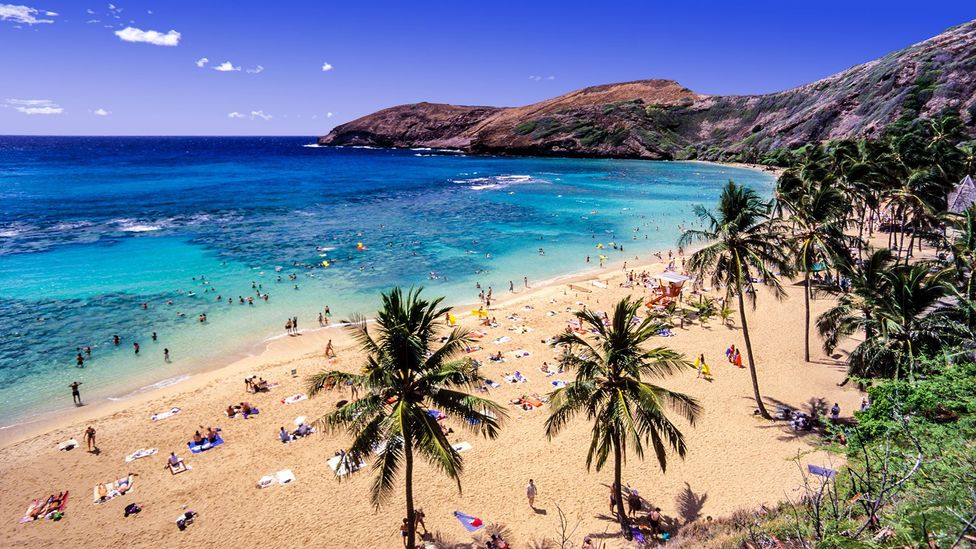
Hammer Tsui remembers the first time she realised she was taxed for being a tourist. She and her husband were visiting Barcelona when she discovered that overnight visitors and cruise passengers were required to pay a surcharge. The fee, introduced in 2012, will climb to €3.25 a day on 1 April 2024 , meaning a couple staying a week will pay more than €45.
"It left me feeling disheartened," said the Hong Kong-based blogger, who documents her travels with her husband. "I've always believed that tourists contribute significantly to the local economy and should be welcomed with open arms." The tax, she thought, "seemed unfair and somewhat unethical".
But whether travellers realise it or not, tourist taxes are now as much a part a trip as selfies and souvenir shops. And more are on the way.
Last month Bali began charging international visitors an entry tax of 150,000 rupiah (£7.50). Venice recently imposed a fee of up to €5 for day visitors and Hawaii's governor has introduced legislation that would charge visitors a US$25 "climate tax" . Seville has even just announced a plan to fund the conservation of its popular Plaza de Espana by charging visitors to enter.
This is not a new thing, however. Countries have long taxed travellers by requiring them to buy tourist visas. Airports add fees to airplane tickets; local governments regularly impose hotel and car rental levies; and popular destinations with tourist fees dot the globe, from Bhutan to Belize, Mallorca to Malaysia.
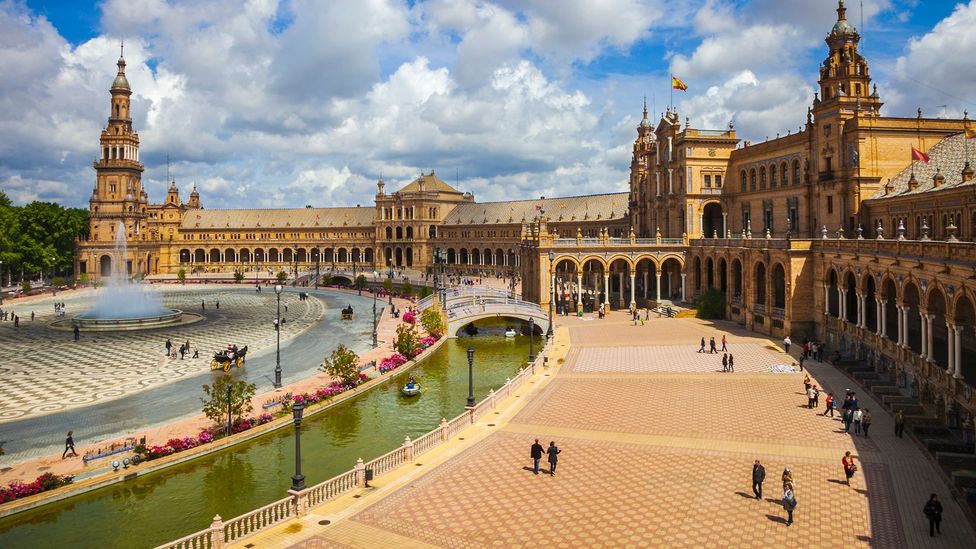
Tourists visiting Seville may soon have to pay a fee to explore its famous Plaza de Espana (Credit: Gonzalo Azumendi/Getty Images)
But the recent surge in destinations imposing or raising tourist taxes reflects the ever-increasing pressures of climate change and overtourism – and they look set to stay.
Money raised from all these taxes are often added to a general budget, but many entities also earmark a portion to promote tourism. In some cases, the charges support sustainability initiatives, like protecting wildlife, rebuilding ruins and even supporting musicians.
Academics say the fees make sense because travellers get to visit places without paying to develop or maintain them, while residents face the burden of litter and crowds. "The tourism industry 'freeloads' on the public realm," said Harold Goodwin, senior fellow in the Institute of Place Management at Manchester Metropolitan University. "What is the argument for tourists and day visitors not contributing?"
Increasingly taxes also aim to limit the number of visitors.
"In the past there was a sense that the more tourists the better, and that every additional visitor created an additional benefit. More recently, destinations are realising there is a finite number of visitors that can be accommodated," said Justin Francis, who partnered with Goodwin to start tour company Responsible Travel , whose trips are designed to reduce the harmful impacts of tourism.
Experts say if travellers are required to pay a special tax, it's important they know how the money's used. A 2019 study in Italy's Puglia region showed that visitors who were told a fee would help protect the city they were visiting were more accepting of the levy, and were willing to pay nearly five times more.
A few regions have taken this message to heart, aiming to be transparent with how they spend the money they raise.
Iceland uses its accommodation tax of up to €7 a night to support tourism and sustainability. The Icelandic Tourism Board website details how the money has been spent, showing funding for hundreds of projects such as building infrastructure for whale watching, maintaining hiking paths near natural hot springs and adding toilets to a glacier research area.
In Austin, Texas, visitors can literally hear what has been done with their money. Proceeds from a portion of the city's accommodation tax support a "Live Music Fund", which provides grants to musicians, concerts and festivals.
And after Spain's Balearic Islands introduced a fee in 2016, it highlighted resulting projects including dune preservation, a new pedestrian walkway in Ibiza and the restoration of medieval walls in the city of Alcúdia.

Iceland uses its tourist tax to fund infrastructure projects such as maintaining hiking paths near hot springs (Credit: Matthew Micah Wright/Getty Images)
Some businesses have gone as far as self-imposing taxes for what they say is the good of the planet. Maple Leaf Adventures, an expedition cruise line operating along Canada's British Columbia coast, has joined other operators to collect a C$200 sustainability fee per passenger. "This is a 'representative amount' but not nearly the true actual cost to be a responsible operator," said Maureen Gordon, the cruise line's co-owner, noting that the money goes to conservation groups, sustainable operations and Indigenous communities.
Still, critics wonder if it's elitist to charge a tax that might price some travellers out of visiting. "I believe there are more equitable and effective ways to address issues like overtourism without burdening travellers unfairly," said Tsui. "Ultimately, I hope for a balance where tourism taxes are used judiciously to support sustainable tourism practices while still welcoming visitors."
Whatever your view, the charges have become an important revenue source for governments and aren't likely to go away. For example, Barcelona estimates it will collect up to €100m in 2024.
These taxes, Francis notes, "are very effective in raising funding".
Join more than three million BBC Travel fans by liking us on Facebook , or follow us on Twitter and Instagram .
If you liked this story, sign up for The Essential List newsletter – a handpicked selection of features, videos and can't-miss news delivered to your inbox every Friday.
- Search the Healthplan Spain Magazine Search

- Most Popular
- Self Employed
- Types of insurance:
- With Co-payments
- Without Co-payments
- International Cover
- Transferring from BUPA
- Health insurance for:
- All Visas (except Students)
- Students Visas
- Residency / NIE
- For People Already Living in Spain
- All Dental Plans
- Plans With Co-payments:
- Sanitas Dental
- Dental Millenium
- Sanitas Dental Premium
- Plans Without Co-payments:
- Sanitas Dental 21
- EXTRA OPTIONS
- BUPA TRANSFER
- GET A QUOTE
HEALTHPLAN MAGAZINE
- Health News
- Health Tips
- Our Hospitals

Many regions in Spain charge a tourist tax, also known as an " eco-tax " or " city tax ".
There are a number of cities and regions in Spain which have now imposed the tax, so if you are visiting the country in 2023, you may find that you will have to pay an extra amount for each night of your stay.
These taxes are typically imposed on overnight stays in hotels, apartments, and other types of accommodation.
The amount of the tax varies depending on the location and type of accommodation you stay in, and it is usually collected by the property owner or manager at the time of check-in.
Below we cover which of the Spanish regions have imposed the tax, why the tax is being used, and which tourists need to pay it.
Why have some regions imposed a tourist tax?
Some regions in Spain have imposed the tourist tax as a way to generate additional revenue and to help offset the costs of maintaining and improving tourism infrastructure and services.
Additionally, the revenue generated from tourist tax can also be used to fund local initiatives and programs such as cultural and environmental projects, as well as to support the development of sustainable tourism practices.
It is also seen as a way to control over-tourism in certain areas and promote responsible tourism by encouraging visitors to spread out and visit other areas, rather than congregating in popular destinations.
Which regions will charge a tourist tax in 2023
Some of the regions in Spain that currently charge a tourist tax include the Balearic Islands, Catalonia and Valencia.
It is important to note that these rates are subject to change and that some municipalities may have different rates. It is always best to check with the local authorities or the hotel/property owner for the most up-to-date information prior to travel.
Catalonia first imposed its tourist tax back in 2012, however, the local authorities there have recently stated that they plan to increase the tax in 2023/2024.
The tax generally comes in two parts with one part paid to the regional government and the other part paid to the municipal council.
Note that there are different rates on whether you are staying in Barcelona or elsewhere in Catalonia. Staying in Barcelona will see you pay more in tourist tax.
It is important to note that the tax is only charged for a maximum of seven days per person who stays in the same accommodation continuously.
Below we have broken the two down.
Barcelona - Currently, the municipal tax is split with a fixed surcharge of €1.75 which goes to the city council, and a further payment depending on the accommodation type which goes to the regional government.
For example, at the moment, a tourist staying in a five-star hotel will pay €5.25 per night to stay in the city. However, by 2024, this will rise to €6.75 with the surcharge increased from €1.75 to €2.75 in 2023 and then to €3.25 from April 1, 2024.
A guest staying in a five-star hotel will therefore pay an extra €47.25 for a seven-night break.
Those staying in regulated apartments will also have to pay more from 2023.
Currently, guests pay €4.00 per night to stay in an apartment, €2.25 per night to the regional government, and €1.75 to the city council.
With the change, this will rise to around €5 per night from 2023.
Cruise ship passengers staying in the region for more than 12 hours will also have to pay more. Visitors currently pay €3 to the region and €1.75 to the city, however, this will increase to a total of €6.25 per night by 2024.
Learn more about the recent increase to the Barcelona tourist tax .
Catalonia region - In the Catalonia region (not including Barcelona) guests will pay a total of between €0.60 and €3.00 per night depending on location and accommodation type.
Note that if staying outside of Barcelona, you only pay the general rate for Catalonia. There is nothing to pay to the Barcelona City Council.
For specific rates per accommodation, please see the Catalonia government website .
Valencian Community
The Valencian regional government recently announced that they would be introducing a tourist tax and although no exact dates have been disclosed, it will most likely be at the end of 2023 or early 2024.
The regional government said they would be delaying the rollout of the tax as it was “ not the right time ” given the cost of living crisis and economic uncertainty.
Once the tax does come into force, it will mean that holidaymakers visiting the region in the most popular holiday destinations such as Benidorm, the City of Valencia, and the Costa Blanca, will see the cost of their breaks increase.

So how much will the Valencian tourist tax be?
Those staying in certain accommodations will pay up to €2 extra per day with those staying on cruise ships also having to pay around €1.50 extra per day .
Payments will only be charged for a maximum of seven days , so those at the top end of the scale and staying in hotels will pay around €14 extra per person.
Anyone under the age of 16 will be exempt from paying the tourist tax.
The announcement did meet with some opposition with some people believing it will have a negative impact on tourism in the region, however, it is believed that the tax will not be compulsory, with individual councils getting to choose whether it is levied or not.
Learn more about the Valencian tourist tax .
Balearic Islands
The Balearic Islands, similar to Catalonia, have implemented a tourist tax for all visitors. This tax was first introduced in 2016 with the intention of using the funds to make tourism more sustainable.
The Balearic Islands has established two rates, one for the high season between May and October and the other, the low season, which applies between November and April.
During the low season, the rates are reduced significantly, with rates ranging from 25 cents to 1 euro depending on the accommodation you will be staying in. The rates below are for the high season .

Anyone over the age of 16 staying in the Balearic Islands must pay a fee between €1 and €4 per night.
It should be noted that day campers are required to pay a fee of €1 per day, while cruise passengers and those staying in cheaper hotels and apartments must pay €2, those staying in mid-range accommodation must pay €3, and those staying in luxury hotels must pay €4.
According to data provided by the authorities, approximately €12 million is raised annually as a result of this tourist tax. The funds are used to preserve and maintain the natural resources of the area.
Other regions which are considering charging a tourist tax
There are a number of other regions in Spain which have been debating the introduction of a tourist tax including the popular Andalusian destinations of Malaga and Seville .
However, in 2023, there is unlikely to be a tourist tax with the regional government, the Junta de Andalucia, against the idea, saying that it could negatively impact tourism in the region.

January 10, 2024

December 21, 2023

Updated: February 07, 2024 CET

December 08, 2023

December 05, 2023

November 29, 2023

- Sanitas Health Plans
- Sanitas Hospitals
- Sanitas Dental Plans
- Sanitas Extra Options
- Sanitas Self-Employed Plans
- Sanitas Business Plans
- Insurance for Students
- Insurance For Residency / Visa
- Transferring from Bupa
- Worldwide Health Insurance
- Insurance for Self Employed
- Private Patient Services
- Find a Sanitas Doctor / Specialist
- Pregnancy and Childbirth
- Frequently Asked Questions
- How To Buy Our Products
- HealthPlan Magazine
- Visa Requirements For Spain
- How To Call Emergency Services
- How To Get Residency In Spain
HealthPlan is authorised and regulated by the Direccion General de Seguros y Fondos y Pensiones No. C0320 - 22395 / Legal / DMCA Notice / Disclaimer / Privacy Visit Our Offices at Calle Valentuñana, No.2, Marbella, Málaga, 29601
You are using an outdated browser. Please upgrade your browser or activate Google Chrome Frame to improve your experience.
Tourist tax in Europe 2021: what you will pay in Spain, Italy and other hotspots
Share the love
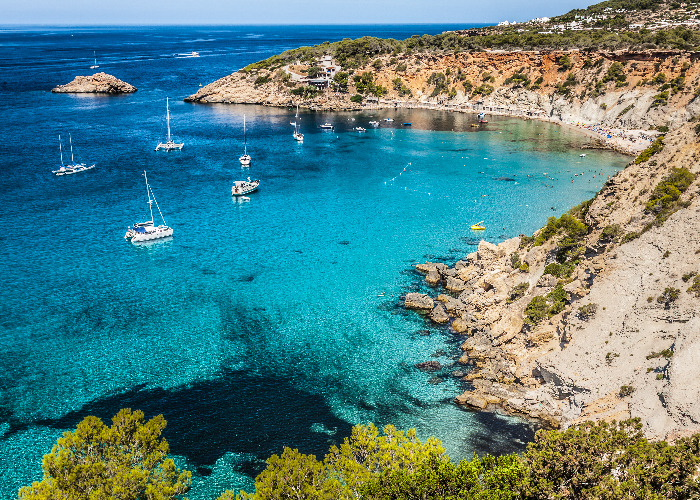
Tourist taxes are becoming increasingly commonplace. Find out how much you'll likely have to pay on your next European holiday.
New venice tourist tax expected next summer, austria tourist tax, belgium tourist tax, bulgaria tourist tax, croatia tourist tax, france tourist tax, germany tourist tax, greece tourist tax, hungary tourist tax, italy tourist tax, netherlands tourist tax, portugal tourist tax, romania tourist tax, slovenia tourist tax, spain tourist tax, switzerland tourist tax.
Venice is planning to charge tourists up to €10 each from next summer, according to media reports.
The tourist tax might be anywhere from €3 to €10 per day, depending on whether someone visits during the low, high or peak season and will largely be aimed at day-trippers.
This will be in addition to Italy's existing tourist tax, which is paid at the hotel and ranges between €1 and €5 per person per night.
The majority of visitors to Venice are day-trippers, many from cruises, and contribute little economically to the city, despite producing huge amounts of rubbish and disruption.
Lots of other popular European destinations have taken to charging tourists a little extra.
Often even though you’ve already paid for your holiday, you will be asked to hand over extra cash when you arrive at your hotel or when you check out.
We’ve taken a look at what tourist tax you will be hit with for a range of popular European holiday destinations.
Save a fortune on your next holiday: check deals on Travel Zoo
In Austria, tourists have to pay an overnight accommodation tax (including in caravans and campsites), which is charged according to the province you are staying in.
The tourism levy, which can go by many names, ( Tourismusgesetz and Beherbergungsbeiträge are just two), is currently up to 3.2% of the hotel cost per person per night in Vienna.
Children under 15 are exempt from the tax.
In Belgium, there are a range of tourism taxes to watch out for, which vary by city.
In Antwerp, there is a fixed rate, including VAT, of €2.97 (£2.52) per person, per night for stays in hotels.
Accommodation that falls under the Tourism for Everyone decree and children under 12 years of age are exempt from the tax.
If you are staying in Bruges, there is a tourism tax of €2.83 (£2.41) per person, per night (excluding VAT). This applies to all tourist accommodation, including hotels, guest houses and hostels.
In Brussels, there is a City Tax that is charged per room, per night according to the borough, hotel size and hotel classification.
At the Brussels Novotel, for example, you will be charged €4.25 (£3.63) per room, per night due to a City Tax.
Save hundreds on your next holiday with lastminute.com
Bulgaria levies a City Tax or a Resort Tax on visitors, which varies by area and hotel classification.
The City Tax is charged per person, per night which ranges from 0.2 Bulgarian (BGN) Lev (8p) to 3 BGN Lev (£1.31).
The Resort Tax is applied in some areas, which is charged on a per person, per stay rather than per person, per night basis.
In Croatia, holidaymakers have to pay a ‘Sojourn Tax’ which can vary depending on the category of the accommodation and season.
This tourist tax is typically more expensive during peak seasons although children under 12 are exempt from the tax.
In France, there is ‘Taxe de Sejour’ or tourist tax, which is charged per person, per night and varies according to the quality and standard of the accommodation.
The rates range from €0.20 (17p) to around €4 (£3.42) per person, per night. You can see how the prices breakdown on the service-public.fr website .
Paris charges higher rates of tourist tax ranging from €0.25 and €5 (£4.27) per person, per night, depending on accommodation. Children under 18 are exempt from the tax.
Kulturförderabgabe (Culture Tax) or Bettensteuer (Bed Tax) are some of the terms used for tourist taxes in Germany.
The taxes range from €0.50 (42p) to €5 (£4.27) per person, per night or 5% of the room bill depending on the type of accommodation, room rate and location.
In Berlin, for example, you will be charged 5% of the room rate (excluding VAT) and the tax is capped at 21 successive days although business travellers are exempt from the tax.
Munich, however, does not have a tourist tax.
In 2018, Greece introduced a tourist tax, the first time one had been levied.
You'll have to pay the tax when you check in to your accommodation and you can pay it by cash or card.
The cost is €0.50 (42p) per person per day for those in one to two-star hotels, going up to €1.50 (£1.28) in three-star hotels, €3 (£2.56) in four-star hotels and €4 (£3.42) in five-star hotels.
Visiting Budapest? You'll usually have to pay an extra 4% of the price of your room per night.
In Italy, tourists have to pay a tax called Tassa di soggiorno.
The charge varies from city to city, will depend on a hotel’s star rating and is levied on a set number of nights and there are usually exemptions for children.
In Rome, for example, you can expect to pay between €4 (£3.41) and €7 (£5.98) per person per day for up to 10 days of your stay. Children under 10 are exempt from the tax.
A table with a breakdown of the current taxes in popular cities can be found on italyvacations.com .
In the Netherlands, visitors get charged a tourist accommodation tax called Toeristenbelasting.
It's charged per person, per night by over 400 municipalities according to the ETOA but can vary according to hotel grade and accommodation type.
The rest either charge a percentage, which can also vary by hotel star rating or type of accommodation, or they can charge nothing.
For example, in popular tourist hotspot Amsterdam there is a flat fee of €3 per person, per night plus 7% City Tax based on the room price.
Visitors to the Portuguese capital of Lisbon have to pay a Municipal Tourist Tax, which is currently €2 (£1.72) per person, per night according to Airbnb.
Children under 13 are exempt from the overnight tax and it only applies to the first seven days of your stay.
In Porto, you'll pay €2 (£1.72) per person per night up to a maximum of seven nights.
A tourist tax of €1.50 per night/per person for up to seven nights was set to be introduced in Faro (Algarve) in March 2020 but this has been temporarily suspended.
The Romanian tourist accommodation tax is called taxa hoteliera locala.
It has been standardised to 1% and is charged against the total value of the accommodation for each night. However, if the accommodation is in a tourist resort, the tax is for the first night only.
Tourists under the age of 18 are exempt.
Slovenia charges a tourist tax, which varies nationwide (depending on on location and hotel grade).
Taxes in the capital Ljubljana are €3.13 (£2.67) per person per night, including a €0.63 promotion tax, while there is a 50% discount in some circumstances.
Generally, children under seven are exempt from the tax, while children aged between seven and 18 are charged at half the rate.
If you're heading to Ibiza or Majorca, you'll have to pay tourist taxes.
The Sustainable Tourist Tax, which applies to holiday accommodation on Spain’s Balearic Islands (Mallorca, Menorca, Ibiza, Formentera), applies to each holidaymaker aged 16 or over.
During high season, those staying in luxury hotels pay €4 a per person, per day (£3.42 at the time of writing), €3 (£2.56) for mid-range hotels and €2 (£1.71) for apartments and cruise ship visitors – even if you don't stay on the islands – and €1 (85p) for campers and hostels.
Prices are up to 75% lower if you're travelling from November to April and the tax drops by 50% after your eighth night on the island.
The money raised from the 'eco tax' will go towards the protection of resources on the islands.
Spain also charges people visiting the Catalonia region, a tasa turistica .
You will have to pay between €0.45 (38p) and €2.25 (£1.92) per person, per night, for the first seven nights, which depends on the hotel category and whether you are staying in Barcelona.
The table below sets out what you are likely to pay (children under 16 are exempt)
Source: Agència Tributària de Catalunya
There is also a surcharge from Barcelona City Council – you can find out more here .
The Canary Islands are considering introducing a tax but so far has yet to do so.
Anyone staying overnight in Switzerland has to pay a tourist tax.
According to the ETOA, it is charged per person, per night and varies by town and in some cases by the type of accommodation.
It is made up of two elements the Beherbergungsabgabe (BA tax) and Kurtaxe.
The BA tax goes towards paying for tourism advertising and maintaining infrastructure in regions, but the Kurtaxe is used to improve the tourism experience for visitors.
As each canton in Switzerland determines how to set the taxes, there can be further variations.
*This article contains affiliate links, which means we may receive a commission on any sales of products or services we write about. This article was written completely independently.
Be the first to comment
Do you want to comment on this article? You need to be signed in for this feature
Copyright © lovemoney.com All rights reserved.

Tourism tax rates in Spain
Last updated 15 February 2021 | Rates reviewed for all destinations listed. Changes include:
- Catalonia regional tax rate increase
- Barcelona Surcharge delayed from January 2021 until June 2021
- Update on destinations considering
A tourism tax (tasa turística) only applies in Catalonia and the Balearic Islands.
The following destinations are considering but unknown if or when a tax will be implemented (as of 15 February 2021) .
- San Sebastián – Potentially proposed between €1 and €5 per person per night depending on star rating of accommodation. Decision postponed to a future date .
- Segovia – Potentially proposed €1 or €2 per person per night
- Seville – Potentially proposed €1 or €2 per person per night
The tourist tax (taxa turística) is decided by the regional government (Generalitat de Catalunya) using the flat rate per person, per night by accommodation type and star rating and a day tax is levied on cruise ship passengers.
The regional government has also approved Barcelona City Council to implement a Surcharge in addition to the regional tourist tax, set to be implemented on 1 June 2021. The law allows the Surcharge amount to vary up to €4 depending on the location of the accommodation, but Barcelona City Council have agreed the following fixed amounts:
2021 – €0.75 per person per night 2022 & 2023 – €1 per person per night 2024 – €1.25 per person per night
N.B. in the case of early booking of the accommodation, the applicable rate is the one in force at the time of making the reservation provided that the amount of the reservation and the tax is paid at this time.
* 1-3 stars: €1 regional tax + €0.75 surcharge * 4 stars: €1.70 regional tax + €0.75 surcharge * 5 stars: €3.50 regional tax + €0.75 surcharge
How the tax revenue is used
The regional tax revenue is collected by the regional government (Generalitat de Catalunya) with a proportion of the revenue redistributed to local governments to be used for tourism promotion and develop tourism-related infrastructure and services. In November 2019 the Ajuntament de Barcelona announced €4.22 million of this revenue to be used to fund 7 projects in the city.
Revenue from The Surcharge is to be fully retained and managed by Barcelona City Council. The revenue is intended for similar purposes as the regional tax.
Balearic Islands (Mallorca, Menorca, Ibiza, Formentera)
The tourist tax (impost del turisme sostenible) is known as the eco or sustainable tax and is decided by the local government (municipality). The tax applies to visitors staying in commercial accommodation and cruise ship passengers. In low season (1 st November to 30 th April), the tax is reduced by 75%.
A webpage has been published to show which specific projects related to sustainability are funded by the tax.
Disclaimer: While best efforts have been made to verify the accuracy of the information, the information displayed should be used as guidance only.
This content is exclusive to ETOA members
Login here to access it now.
Forgot your password?
Not a member yet?
The ETOA membership opens invaluable networking opportunities to your business, allows you to gain access to critical insights and information and contributes to the campaign for a better regulatory environment in Europe.
- Connect with the global travel trade
- Stay informed of insights, regulations and changes
- Be supported in shaping the tourism landscape

© 2024 EmCan Media - Hosted By canaryfone
- What is Spain’s Tourist Tax? Everything you...
What is Spain’s Tourist Tax? Everything you need to know for charges in 2023
- Canarian Weekly
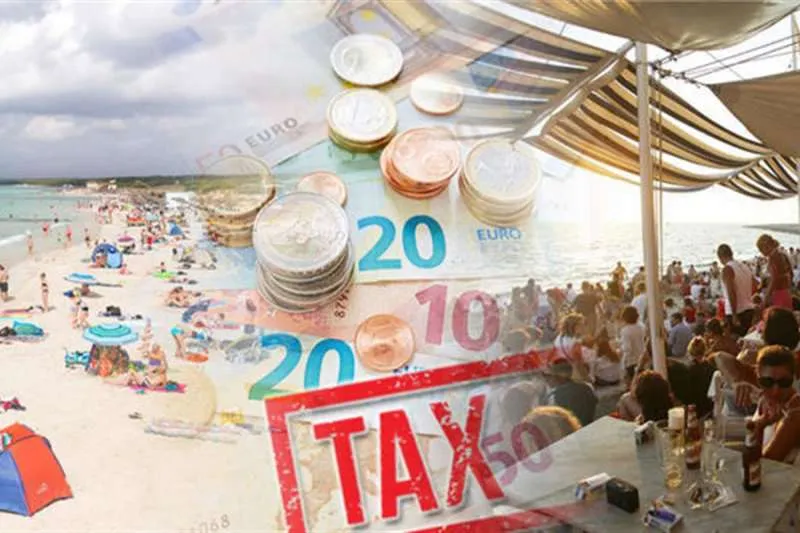
With the lifting of the COVID-19 restrictions and other measures, the number of tourists who decided to visit Spain in 2022 increased again, nearing pre-pandemic levels. However, this has not been welcomed by all destinations in Spain, as those more popular ones have expressed their concerns regarding over-tourism, and thus, have decided to start applying, or increasing, tourist taxes.
Currently the Canary Islands doesn’t have a tourist tax, but there are ongoing in-depth talks about whether one should be introduced, how much it would be, and how to implement it.
Barcelona is one of the destinations that has decided to increase the tourist tax for visitors, while the region of Valencia is planning to introduce it by the end of the year.
Barcelona: Barcelona is consistently Spain’s most visited city, and since 2012 it has been requiring visitors to pay an extra fee in addition to the region-wide tourist tax.
The fee that Barcelona charges depends on the type of accommodation visitors chooses to stay in, and this measure is aimed to help the city deal with ‘over-tourism’.
Currently, guests visiting Barcelona and staying in rental accommodation are required to pay a nightly fee of €4, of which €2.25 goes to the regional government and the remaining part goes to the city.
In addition, those staying in five-star hotels are required to pay a higher priced tax of €5.25 per night, of which €3.50 goes to the city, and cruise passengers who spend over 12 hours in Barcelona also need to pay a fee, which equates to €4.75 (€33.25 a week per person) and this case the city keeps €3.
Even though this fee might seem high, the authorities have announced that Barcelona’s tourist tax will increase over the next two years, in some cases by up to €2 per night, claiming that they decided to take such a measure in order to attract ‘quality tourism’ rather than a large number of visitors.
“Our aim is to contain the number of tourists and increase income from tourism because our model is no longer mass tourism but quality tourism, which adds value to the city,” the deputy mayor Jaume Collboni stressed.
In addition, he pointed out that the tourist tax increase will also help the city’s annual budget. It is forecast that the fee will bring in around €53 million for Barcelona this year and around €100 million in 2024.
Apart from Barcelona, the whole region of Catalonia also applies a tourist tax. In general, guests staying in the regions of Catalonia have to pay a fee of €3.50 per night when staying in a five-star hotel and €2.25 when staying in rental accommodation.
The Balearic Islands: Just like Catalonia, the Balearic Islands (including Ibiza and Majorca) have been applying a tourist tax for all visitors since 2016, and back then, when the decision was taken, the authorities said that the fund would be used to make tourism more sustainable.
Currently, everyone over the age of 16 staying in the Balearic Islands has to pay a fee between €1 and €4 per night.
The authorities reveal that day campers are required to pay a fee of €1 per day, cruise passengers and those staying in cheaper hotels and apartments are required to pay a fee of €2, those staying in mid-range accommodation are required to pay a fee of €3, and those staying in luxury hotels are required to pay a fee of €4.
Data provided by the authorities show that around €12 million euros are raised each year as a result of the tourist tax. Moreover, it has been emphasised that the money is being used to protect, as well as maintain, the natural resources of the area.
Valencia: Differently from the region of Catalonia and the Balearic Islands which have been applying a tourist tax for several years, the region of Valencia will start doing so at the end of this year, for all travellers staying in the region in apartments, hostels, hotels, and campsites, among others.
As soon as the tourist tax for Valencia becomes effective, those who visit the region will be required to pay an amount between 50 cents and €2 per night. This means that the fee will depend on the type of accommodation.
The authorities said that such a decision will help the region sustainably develop its tourism sector. Moreover, they stressed that the tax will be known as the Valencian Tax on Tourist Stays and will bring in around €30 million per year to the region.

Man fakes two robberies for €6,900 insurance claim in Tenerife

Tenerife celebrates World Oceans Day with beach cleanup
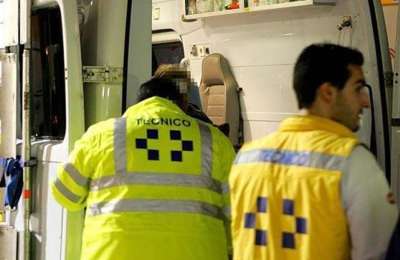
Eight injured in head-on collision in the south of Tenerife

15 ‘recreational’ fishing boats sanctioned up to €60,000 for illegally catching tuna

King Kong, the world's most iconic ‘movie monster’, arrives in Los Cristianos

Canary Islands see 200% increase in evictions in first quarter of 2024

Man released from prison commits 16 robberies in two months

Meningitis outbreak detected at Canary Islands school

UK tax update for British expatriates in Spain and the Canary Islands
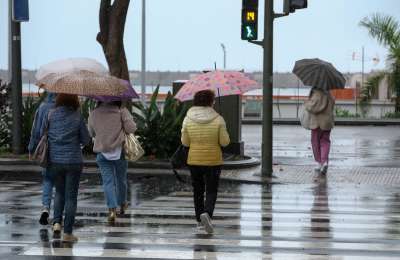
May surprises AEMET with 116% of expected precipitation in the Canary Islands

Passenger arrested at Lanzarote Airport with five blocks of Hashish in his suitcase

Why more industries are going exclusively online

Courts order the liquidation of Taurito hotel chain
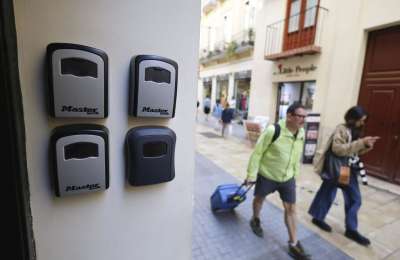
ASCAV applauds the investigation to fine owners of illegal holiday rentals

Cloudy skies and light showers in the Canary Islands this Friday

Rowdy British stag-do removed from 'flight from hell' to Tenerife by police
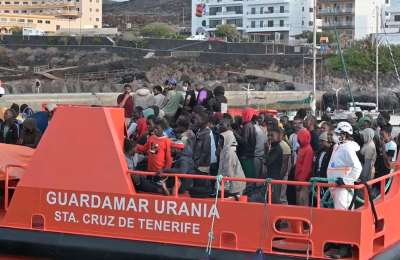
516 migrants rescued in the last 24 hours with 1 dead and 10 missing

How Air Conditioners can impact indoor air quality

The world’s largest sand tapestry is created in Tenerife

Council launches ‘Arona is your home: pick up your dogs poop’ campaign

Exploring Beyond Tradition: The case for alternative investments

VIDEO: Sexual exploitation ring dismantled in Lanzarote

Housing market in the Canary Islands surged by 30% in April

The Canaries opens investigation into accommodation platforms for illegal holiday rentals
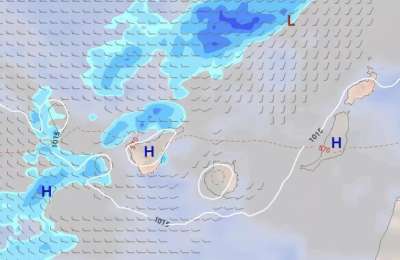
Tail of Atlantic front is bringing rain to the Canary Islands

2.2 magnitude earthquake recorded in area of La Palma's Tajogaite volcano

HomeCare Tenerife: A solution for stress-free retirement abroad

Fuerteventura cancels interest in the Dreamland Project

Spain's Islands: the hottest travel places you should not miss out on this summer

FTI bankruptcy affects 40,000 tourists and 1,500 workers in the Canary Islands
- Inspiration
- Destinations
- Places To Stay
- Style & Culture
- Food & Drink
- Wellness & Spas
- News & Advice
- Partnerships
- Traveller's Directory
- Travel Tips
- Competitions
Tourist tax: These are the destinations you’ll have to pay to enter
By Olivia Morelli

The concept of tourist tax isn’t a new one. City tax has long been the norm for many countries in Europe such as Greece , Spain and Germany , and hotel tax is standard across many destinations, including US states. The impact of Covid on the travel industry was severe – hotels, restaurants and hospitality venues closed, people that relied on tourism for their livelihoods suddenly faced huge losses, and money that the government relied on for development and maintenance was depleted. As a result, while travel continues to normalise post-pandemic, many countries have decided to implement a tourist tax to boost economies and reinvigorate locals. Below, we take a look at what exactly tourist tax is, and which countries are introducing the measure for 2024.

What is tourist tax?
Originally, tourist tax was introduced by certain governments with the aim of tempering over-tourism and generating income from large numbers of travellers entering the destination. Bhutan, for example, has asked tourists to pay a significant sum of money to enter since it opened to travellers in 1974. The country uses the tax (called the Daily Sustainable Development Fee) in an attempt to preserve the country’s natural, undisturbed beauty and to protect traditional Buddhist culture. Similarly, Barcelona uses the city’s tourist tax to fund construction and development projects locally – typically it is around €5 per day per person. Most tourist taxes are added onto the cost of your accommodation.

Which destinations will begin imposing tourist taxes in 2024?
- In Italy , Venice are charging day tourists a fee as of spring 2024
- The Indonesian government has announced that a tourist tax will be imposed on travellers visiting Bali from 14 February 2024
- In 2024, the UK is imposing a new system called an Electronic Travel Authorisation (ETA), whereby visitors from the US, Europe, Australia and Canada will be required to apply for permission and pay to enter the country .
- Next year, the EU will begin implementing a new tourist visa, whereby non-EU citizens travelling from outside the Schengen zone will need to fill out a €7 application to enter the country.

Which destinations currently impose tourist tax?
The below destinations impose tourist taxes on travellers entering the country, but the amount of tax charged changes frequently. We have included some guidance on projected costs, but make sure you check with your accommodation or the tourism board for each destination before travelling to be sure how much you need to pay.
- Austria : the cost of tourist tax is typically added onto your accommodation bill, and is around 3.2 per cent in Vienna .
- Belgium : in Brussels tourist tax is mainly below £3.50, and is added onto your accommodation bill, but it varies from city to city.
- Bhutan : since September 2023, the daily Sustainable Development Fee in Bhutan has dropped to £157 for adults.
- Bulgaria : tourist tax in Bulgaria varies on destination and hotel standard, but it is usually below £1.30.
- Caribbean Islands: most of the Caribbean islands charge tourist tax, and the price ranges depending on the island – in St Lucia , for example, it is around 8 per cent, whereas in the Dominican Republic it is 18 per cent.
- Croatia : the cost of tourist tax in Croatia depends on the season you are travelling in and where you are staying, but it ranges from 20p to 70p per day.
- Czech Republic: in Prague, tourist tax typically costs around CZK 50 per night (around £1.71).
- France : here tourist tax is based on a municipal rate, but standard cost is between 20p and £4.30 per night.
- Germany : it varies from city to city – in Berlin, the standard tourist tax is five per cent of the accommodation price.
- Greece : the price you pay in Greece depends on the standard and size of your accommodation. It shouldn’t be more than £3.50 per night.
- Hungary : travellers should expect to pay four per cent of the cost of accommodation per night.
- Indonesia: from Wednesday 14 February 2024, travellers will have to pay 150,000 rupiah (£7.60) upon entering Bali.
- Italy : depending on the city, tourist tax can be somewhere between 80p and £6.10 per night.
- Japan : if you’re travelling to Japan , expect to pay 1,000 yen (about £5.50) in tourist tax.
- Malaysia : in 2023, the cost of tourist tax across Malaysia is £1.68 per night.
- New Zealand: travellers visiting New Zealand have to pay an International Visitor Conservation and Tourism Levy (IVL) which costs $35 NZD (£16.80)
- Portugal : this country charges tourist tax in 13 cities, including Lisbon and Porto . The cost is £1.75 per night.
- The Netherlands : Amsterdam is one of Europe’s most expensive places for tourist tax – currently the rate states at seven per cent of accommodation price plus a flat rate of €3 (£2.61)per person per night
- Switzerland : the price of tourist tax here varies depending on the destination, and it ranges from about CHF 2 (£1.81) to CHF 7 (£6.34) per person per night.
- Slovenia : again, the rate changes from destination to destination (it is higher in cities than in more rural areas), but generally the cost is around €3 (£2.61)
- Spain : several cities in Spain have recently decided to raise the price of tourist tax, and other cities are in discussions about following suit. In Barcelona , the fee is €4 (£3.48), whereas in the Balearic Islands the fee is between €1 (87p).
- USA: when travelling to the USA from the UK, visitors need to apply for an ESTA (Electronic System for Travel Authorisation), which is a type of visa allowing travellers to stay in the country for up to 90 stays. It is valid for two years. The cost of an ESTA is $21 (about £17)
More pieces from Condé Nast Traveller
Sign up to The Daily for our editors' picks of the latest and greatest in travel
Expert advice on how to avoid getting hit by extra costs when flying
The ultimate guide to getting through airport security quickly
The real reason you can’t use your phone on a plane
How to pop your ears on a plane : 9 tricks for relieving ear pressure, according to medical experts
Skip to main content
Airbnb, ready to collect the tourist tax in Spain

Since July 1st, the Airbnb platform has automatically started collecting tourist tax in about 23,000 French cities. France is thus joining more than 400 governments or municipalities with which Airbnb is already collaborating to collect tourist tax. None of them are in Spain.
The collection of the tourist tax on behalf of hosts simplifies the paperwork that hosts would have to face, but also makes it easier for cities to obtain additional income. Many of these cities are sometimes outside the traditional tourist areas and are able to develop public policies that contribute to sustainable tourism thanks to these revenues.
Airbnb wants to work with governments in Spain to make this possible by providing them with the necessary technological tools to facilitate collection of the tourist tax.
The Generalitat de Catalunya has been collecting a tourist tax for years, and our conversation on that topic is still open.. More recently, the Seville City Hall has expressed its interest in introducing this tax for private homes as well. A similar debate is taking place in Madrid… Airbnb wants to work with governments in Spain to make this possible by providing them with the necessary technological tools to facilitate collection.
Airbnb is able to demonstrate its long experience in this field. It is the only home sharing platform that collects tourist tax on behalf of its users. Thanks to agreements with governments around the world, it has raised more than $700 million in tourist taxes (€580 million).
SEE ALSO – Airbnb collects €6 million in two years for the city of Lisbon
SEE ALSO – Where does Airbnb collect tourist tax ?

Spanish locals reject tourist tax in huge win for British visitors
British tourists will not be hit with a visitor tax following a unanimous rejection by a Spanish regional government.
The Andalusian Regional Government, the Andalusian Federation of Municipalities and Provinces (FAMP) and the Confederation of Businessmen of Andalusia (CEA) met on Monday in Malaga to discuss the tourist tax and unanimously rejected any imposition.
"We think it is premature to talk about a tax without knowing its impact", said Arturo Bernal , the Andalusian Minister of Tourism, after the meeting during which the position of the businessmen prevailed against the request of the Town Councils, who wanted to decide for themselves.
The meeting has also resulted in the creation of an Observatory for Local Tourism Sustainability , which aims to analyse tax, financial and service production issues in tourism in order to provide a solution to the problems that are arising in terms of coexistence with the rest of society.
At the start of May, Juan Espadas - the Secretary General of the Andalusian Socialists - announced that his party would present a bill in the Andalusian Parliament so that the local councils would have the legal possibility of implementing the tourist tax.
Despite the fact that José María Bellido , mayor of Córdoba and president of the FAMP, argued that this initiative "rather than supporting the cities" was instead seeking political or electoral gain, councillors including De la Torre were in favour of the "tourist contributing to spending with this tax and indirectly returning the enjoyment of the city".
Bellido, who acknowledged that there was a wide spectrum of opinions among the Andalusian mayors, assured that the councils have been "listened to and attended" in tourism matters during Monday's meeting, justifying his refusal to implement a tourist tax imminently.
He said: "We understand that any decision could have undesirable effects if we don't get it right."
He also highlighted the introduction of the new structure in charge of compiling information on the sector which is hoped to put a stop to issues such as tourist housing, gentrification and "binge tourism". "It generates an image that is not the one we want and also indirectly is an extra cost for public services," he concluded.
Bernal said the tourism industry already creates 450,000 jobs, which translates into an impact of over £22 billion, and that it is increasingly reducing its seasonality.
He also expressed his opinion on financing and U-turned on the option he tabled just a few hours before the meeting: ceding one percent of the revenue generated by tourist VAT to local councils.
"It is not so much a problem of financing, but rather that the town councils are beginning to have the feeling that they cannot control it due to problems of social and cultural sustainability," he said, while recalling the nearly £213 million of European funds injected into the town councils, reaffirming his desire to maintain this support with funding from the European Union .
Javier González de Lara, the president of the CEA, praised the contribution of tourism to the autonomous community, saying that it "is of incalculable value".
Despite recognising that it has "effects that do not always have a positive impact on the community", he also agreed that "it is premature to create new tax formulas" and considered that "it is a question of analysing the variety of reasons for what is happening and even considering whether it is necessary to strengthen mechanisms to improve this sustainability, which I link to the coexistence of residents and non-residents".
The CEA president agreed with the FAMP president in calling yesterday's event "day one" in which the Regional Ministry and the two bodies begin a journey to enhance the value of tourism, establish working guidelines for the future and maintain a sustainable model.

MORE SECTIONS
- Dear Deidre
MORE FROM THE SUN
- Newsletters
- Deliver my newspaper
- Sun Vouchers
- The Sun Digital Newspaper
- Racing Members Enclosure

How much is tourist tax in Spain? Rules for Barcelona, Majorca & other Balearic Islands explained
- Charlotte Everett , Digital Showbiz SEO reporter
- Published : 13:02, 5 Jun 2024
- Updated : 13:02, 5 Jun 2024
- Published : Invalid Date,
THE summer months are upon us and you may be getting ready to jet off on holiday.
It's important to know where you need to bring some extra pennies to pay tax. Here's everything to know about Spain's tourist tax.

Do you have to pay tourist tax in Spain?
The majority of Spain is tourist tax free but there are some areas where you will need to pay.
Some of the most popular areas of Spain now charge a fee for tourists to help pay for infrastructure, resources and amenities.
The tax also aims to reduce the number of visitors at peak times.
Tourist tax promotes responsible tourism as travellers are contributing to the care and preservation of the destination.
Read more on Spain

Moment shocked Amanda Holden films NAKED man on brazen stroll in Spain

Brits in Spain warned to watch out for violent criminals as sport stars robbed
What is the tourist tax in barcelona and how does it differ to the rest of catalonia.
Despite Barcelona being part of Catalonia, the tourist tax slightly differs.
This tax was introduced in 2012 in Catalonia but the amount of the tax payable by guests has changed over the last decade.
The tourist tax is between €0.60 and €3.50 per person in Barcelona but the rates can change depending on the type of accommodation and its location.
Variations in tax amount can be down to the star rating of the hotel you are staying in.
Most read in Travel

Travel chaos hits major UK airport as hundreds forced to queue outside

I left UK to buy 85p home - I get perfect weather, cheap booze & better neighbours

The lesser-known holiday park with lazy rivers, on-site funfair & nearby beach

The 50p food item you should avoid on the plane - or you’ll ruin your flight
In 5-star hotels guests will have to pay a fee of €3.50 per night, while in tourist accommodation they would only have to pay €2.25.
If you're staying in Barcelona then you are subject to a surcharge from the city council.
2024 saw Barcelona raise its tax after an announcement in 2022 that said the rates would go up over the next two years.
Here are the tourist tax rates for Barcelona:
- Housing for tourist use - €4
- 5-star hotels - €5.25
- 4-star hotels - €3.45
- Other establishments - €2.70
Here is a look at how the tourist tax differs in other parts of Catalonia:
- Housing for tourist use - €1
- 5-star hotels - €3
- 4-star hotels - €1.20
- Other establishments - €0.60
What is the tourist tax in Majorca and the other Balearic Islands?
You will need to pay a tourist tax when you arrive for your holiday to the Balearic Islands.
This includes Majorca, Menorca, Formentera and Ibiza.
The Balearic Islands have charge tourist tax since 2016 in a bid to make tourism more sustainable and preserve the environment.
Here's the rates:
- Luxury hotels - €4
- Mid-range accommodation - €3
- Cruise passengers - €2
- Campers and hostel guests - €1
How do I pay the tourist tax?
Tourist tax tends to be collected by your accommodation upon check in.
This means you don't have to think about it for the rest of your trip.
However some places may wait to charge you at check out.

Is the tourist tax per person or per room?
Tourist tax in Spain tends to be charged per person per night.
This means you need to consider how much extra money you will need to have for your holiday.
Under 16s tend to be exempt from the tax.
Which other countries have tourist tax?
Many other European countries also charge a tourist tax when you visit.
The money raised tends to go towards infrastructure or repairing damage.
For example, Greece introduced a tax facing a year of historic natural disasters .
Record rainfall and heat waves destroyed over 1,500 square kilometres of land and led to 37 deaths.
The funds collected will go towards repairing the damage that the natural disasters caused.
Which European countries charge tourist tax?
Here's a list of which European countries you need to pay tourist tax in:
- Amsterdam, The Netherlands
- Balearic Islands
- Barcelona, Spain
- Budapest, Hungary
- Paris, France
- Prague, Czech Republic
- Switzerland
- Valencia, Spain
- Venice, Italy
Other non-European countries also charge a tourist tax when you visit.
Tax rates will vary depending on which country you visit and how long for.
READ MORE SUN STORIES

I refuse to shave & I’m always hairier than guys, but they love my fuzzy chest

I’m a mum & wear mini skirts & crop tops - I don’t care what people think
Countries include:
- New Zealand
- Most Caribbean islands

THIS popular day trip from Barcelona could introduce a tourist tax charging tourists €5 a day to enter

A POPULAR day trip destination from Barcelona is considering a tourist tax which would see visitors charged €5 to enter the old town.
Beautiful beaches and stunning architecture under an hour away from Barcelona, it’s no wonder Stiges has become a popular day trip from the city.
However, overcrowding and mass tourism has now led the area to consider implementing a Venice style ‘tourist tax’.
READ MORE: Sitges: the Hollywood Catalan

This would see visitors pay €5 a day to enter the old town.
The measure would only apply to those who have not booked accommodation in the area.
It is designed to prevent overcrowding, improve residents quality of life and encourage visitors to stay longer.
Stiges is known for its beaches, old town, film festival and thriving gay community.
The old town’s cobbled streets are full of modernist mansions built by traders who gained their fortune in the Americas.
Visitors must explore the alleys of cute shops and bars, before taking a peek at the Palacio Maricel.
READ MORE: PRIDE OF THE NORTH: Sitges Pride just gets better and better

The majestic house is known for its lavish rooms and excellent views.
Another must visit is the Parroquia de Sant Bartomeu i Santa Tecla, with sweeping sea views from the old wall.
Stiges is also known for its beaches, including Playa de la Fragata, Playa Balmins and Playa de Sant Sebastia.
The latter was even chosen as the New York Times best urban beach thanks to its soft sand, closeness to the centre and lovely views.
The town is also well-known for its annual film festival and strong gay community, with many LGBT friendly bars throughout town.

- The Olive Press
Related Articles

Rising temperatures caused by climate change is behind an increase in suicides, claims scientific study

Barcelona mayor is slapped with a fine after using his bike in a no-cycling zone during a promotional video

Revealed: The world’s best restaurant is in Spain

Yzabelle Bostyn
After spending much of her childhood in Andalucia and adulthood between Barcelona and Latin America, Yzabelle has settled in the Costa del Sol to put her NCTJ & Journalism Masters to good use. She is particularly interested in travel, vegan food and has been leading the Olive Press Nolotil campaign. Have a story? email [email protected]
Leave a Reply Cancel reply
You must be logged in to post a comment.
This site uses Akismet to reduce spam. Learn how your comment data is processed .

Jennifer Cunningham dies- leading British expat business owner and founder of hospice charity on Spain’s Costa Blanca

Cyber sex predator cons young children to send him pornographic images in exchange for video game virtual currencies in Spain
Latest from barcelona.

Michael Barrymore is moving to Spain: Controversial entertainer, 72, cites ‘better quality of life’ and ‘amazing culture’ as reasons behind relocation

EXCLUSIVE: ‘I spent three days at Primavera Sound Barcelona – this is why you MUST add it to your festival list’
More from the olive press.

How much do nuns earn in Spain? Woman of God and TikTok star Sister Marta explains

Travel Safe
Spain, the tax-free destination that feels right for you
There are many reasons you come to Spain to enjoy yourself. Why not take advantage and get the latest trends, the most original designs or the most sought-after brands, all tax free? Debut a unique style when you get home. It's easy with the incredible shopping opportunities that you will find in Spain and our totally agile and automated tax-free refund system.
Shopping Golden Miles: glamor and luxury
Boutique hotels, sophisticated restaurants, exclusive shops, art galleries... Walking through these areas is a pleasure. Stroll the streets and enjoy their seductive style.

Where to go luxury shopping in Madrid

Distrito 41: a “temple” of fashion and restaurants in Madrid

Canalejas Gallery: the best brands and haute cuisine in Madrid

Passeig de Gràcia in Barcelona: one of the most dazzling “golden miles”

Go shopping in the most elegant neighbourhoods of Marbella, Seville, Valencia and Palma
Tax free stamping points in spain.
Find the ports and airports in Spain where you will find the DIVA stamping points and validation posts to process the VAT refund on your purchases.
Luxury outlets and department stores: a day of tailor-made shopping
Discover some of the most notable outlets and department stores in Spain and plan your shopping day, complete with a personal shopper.

The most famous outlets in Madrid, Barcelona and Malaga

El Corte Inglés: Spain's iconic department store
Useful information about tax-free items.
Did you know that if you live outside the European Union, the purchases you make and that you want to take back to your home country are tax-free? Discover how to claim a VAT refund on your purchases in Spain.
What is tax free?
VAT or value added tax is an indirect tax on the final consumption of products and services in countries in the European Union (EU). All visitors whose main residence is outside the EU can claim a tax refund on occasional purchases made in Spain of items for personal use or as gifts which they wish to take back to their country (with the exception of purchases made in the Canary Islands, Ceuta and Melilla).
When and where can you request it?
You must apply for a VAT refund on your purchases at the airport or port of departure from the European Union with the goods purchased, within a maximum period of three months after the purchase.
What documents do you need to claim a VAT refund on your purchases from Spain?
You just have to request the invoice and the electronic tax-free refund document (DER/DIVA form) at the time of purchase, in addition to proving your identity and your residence outside the European Union.
Once at the airport or port of departure, when you are going to return to leave Spain, you must take the electronic tax-free refund documents (DER/DIVA form) with you to validate at the DIVA kiosks or interactive stands, or, where applicable, at the customs office. It is also essential that you bring the purchase invoices, passport, boarding pass and the goods for which you are requesting a refund.
We recommend that you arrive well in advance so that you can make the necessary arrangements and return home with complete peace of mind.
How can you request a VAT refund?
Once the electronic validation process of the tax-free refund documents (DER/DIVA forms) has been completed, you can claim the money. You have two options: Request a VAT refund directly from the shop where you made the purchases, or through tax free management entities authorised by the Spanish Tax Agency (AEAT), which you will find in the boarding areas.
- If you choose to request it directly through the shop: they will refund the entire amount within 15 days by cheque, bank transfer, or to your credit card or other refund method. To do this, you must send the DER visa to the retailer. You have a period of four years to claim it. Once this period has elapsed, the retailer does not have the obligation to return the VAT.
- If you choose to process the refund through the authorised tax-free collaborating entity: they will pay you the corresponding amount of VAT less the authorised fee. The refund may be in cash (in euros), to your credit card, by cheque, or by bank transfer.
What are the authorised tax free collaborating entities?
On the following list, you can find the collaborating entities authorised by the Spanish Tax Agency for VAT refunds on your purchases:
• Global Blue España SA (formerly European Tax Free Shopping Spain SA) • Planet Payment Spain SAU (formerly Cashback and Premier Tax Free) • Innova Taxfree Spain (formerly Spain Refund SL) • Caja de Ahorros y Pensiones de Barcelona • Open Refund SL • Comercia Global Payments Entidad de Pago SL • Financiera El Corte Inglés, EFC • Travel Tax Free, SLU • S21 TAX FREE, SL • KEEP SHOPPING TAX FREE, SL • HISPANIA TAX FREE, SL • B FreeTax Back SL • Safety Tax Free España, SL • Wiblink, SL • WOONIVERS SPAIN, SL (formerly Getrefund SL) • Traveleasy GmBH • Pucela Brain Storm, SL • Refundit, SL • Yourtaxback, S.L. • Upshop Tax Free España, S.L.

Other ideas for your best shopping experience
Here are some more suggestions for you to go back home from Spain with the best presents ever.

Reinventing the souvenir: 10 gifts as typical as they are original

Discover Spain’s most artisan side

Urban tourism
Hundred-year-old shops to take you back in time
We use cookies to ensure best experience for you
We use cookies and other tracking technologies to improve your browsing experience on our site, show personalize content and targeted ads, analyze site traffic, and understand where our audience is coming from. You can also read our privacy policy , We use cookies to ensure the best experience for you on our website.
- Leaders Speak
- Brand Solutions
- Calangute village in Goa plans to collect entry tax from tourists
- Updated On Jun 8, 2024 at 02:40 PM IST

'It's too much': Spain's Balearic Isles battle overtourism
Binibeca Vell, on Menorca island, sits on a small bay with sparkling turquoise waters, and the picturesque village has become a major draw for visitors to Spain's Mediterranean Balearic Isles. A windfall for tour operators quick to promote the "fairytale" allure of this village, designed by Catalan architect Francisco Barba Corsini, the crowds are a source of irritation for locals forced to put up with the rude behaviour of some visitors.
- Published On Jun 8, 2024 at 02:24 PM IST
All Comments
By commenting, you agree to the Prohibited Content Policy
Find this Comment Offensive?
- Foul Language
- Inciting hatred against a certain community
- Out of Context / Spam
Join the community of 2M+ industry professionals
Subscribe to our newsletter to get latest insights & analysis., download ettravelworld app.
- Get Realtime updates
- Save your favourite articles
- maharashtra
- mahabaleshwar
- hotel reservation
- Calangute village
- local residents
- traffic issues
- cleanliness
- Mahabaleshwar Municipal Council
Spanish VAT Rate in 2024: All You Need to Know

Navigating the complex world of taxes can be daunting, especially when doing business in a foreign country. This comprehensive guide will walk you through everything you need to know about the Spanish VAT rate and compliance, making it easier for you to focus on what truly matters - growing your business.
Short summary
- Understand Spanish VAT rates, which range from 21% to 4%, with certain goods and services exempt.
- Non-EU residents visiting Spain are eligible for VAT refunds on purchases made during their stay.
- Businesses operating in Spain must adhere to comprehensive regulations set by the Spanish Tax Agency or face legal repercussions.
Understanding Spanish VAT rates
Value Added Tax (VAT), an indirect tax also known as consumption tax or vat tax, is levied on the consumption of goods and services and comes in various rates in Spain. With the aim of addressing social and economic inequalities, the Spanish government has implemented three different VAT tax rates: standard, reduced, and super-reduced. While the Spanish government has some discretion over the VAT rates implemented, they are controlled by the EU VAT Directive. Depending on the necessity and social impact of the goods and services, each rate applies accordingly, and businesses are required to pay VAT.
So, what exactly is the VAT percentage in Spain for these three rates and how do they affect businesses operating in Spain?
Standard VAT rate
The standard VAT rate in Spain is 21%, which is one of the Spain VAT rates applicable to most goods and services that are not eligible for reduced or super-reduced rates. Think of it as the “default” VAT rate for any taxable transaction in the country. The standard rate ensures that the Spanish government generates revenue from everyday transactions, which can then be utilized for various public services and infrastructure projects.
While most goods and services fall under this 21% bracket, there are specific items that are subject to a lower VAT rate due to their importance and social impact. Let’s explore these reduced and super-reduced VAT taxx rates in the following subsections.
Reduced VAT rate
Certain goods and services in Spain enjoy a reduced VAT rate of 10%. This rate typically applies to essential items, such as specific food items, transport, and cultural services like cinema tickets and access to cultural events. The rationale behind the reduced rate is to alleviate the financial burden on consumers for necessary goods and services, promoting affordability and accessibility.
To take advantage of this reduced rate, businesses must have a valid Spain VAT number. This ensures that the local tax authorities can track and monitor the transactions, ensuring compliance with Spanish VAT regulations.
Super-reduced VAT rate
The super-reduced VAT rate, the lowest of the three, stands at 4%. This rate is reserved for basic necessities such as food staples (bread, milk, eggs), books, and medical supplies. By applying a significantly lower VAT rate to these essential items, the government aims to make them more affordable and accessible to the general public, particularly those with lower income levels.
The super-reduced rate also benefits businesses operating in retail sales, particularly those focusing on essential items, as it can help stimulate demand and encourage consumption. This, in turn, contributes to the overall growth and stability of the economy.

VAT exemptions in Spain
Not all goods and services are subject to VAT in Spain. In fact, there are certain products and services that are exempt from VAT altogether. These exemptions typically apply to vital services, such as medical services provided by dentists, doctors, or opticians, and educational or training courses.
Also, high-value items like gold coins, ingots, and bars, along with internal and international air or sea travel, are also exempt from VAT application Spain. These exemptions aim to promote the accessibility of essential services and reduce the tax burden on consumers.
It’s crucial for businesses to be aware of tax exemptions, as they impact pricing strategies, tax obligations, and ultimately, the bottom line.
Spanish VAT registration process
Once a foreign company distance selling in Spain hits the VAT registration threshold of €10,000, they must register for a VAT number with the Spanish tax authorities. The process of becoming VAT registered requires the submission of necessary documents, such as a certificate of business and a power of attorney. Spanish VAT numbers are a crucial part of the process, as they allow businesses to charge and remit the appropriate VAT on their transactions.
Upon successfully registering and obtaining a VAT number, businesses must adhere to the deadlines set forth by Spanish authorities. For example, your VAT return must be filed by the 20th day of the month following the reporting period. Failure to comply with these deadlines and requirements can result in penalties, fines, and other legal repercussions.
Canary Islands - IGIC tax
For businesses operating in the Canary Islands, a special sales tax called IGIC (Impuesto General Indirecto Canario) applies. This tax functions similarly to VAT but comes with a lower charge of 7%. The Canary Islands, being an autonomous region, enjoy this unique tax system that helps promote economic growth and development in the area.
It’s worth noting that transactions between the Canary Islands and mainland Spain are exempt from VAT . This ensures that businesses operating in the Canary Islands can engage in trade with mainland Spain without the added burden of VAT, fostering economic cooperation and integration within the nation.
Providing services in Spain as a freelancer
Freelancers in Spain are not exempt from the responsibilities that come with VAT. They must charge a 21% VAT on the services they provide to clients. This VAT must be collected from clients and paid quarterly to the Spanish Tax Agency. This ensures that freelancers contribute to the tax revenue generated in the country and comply with the Spanish tax laws.
As a freelancer, it’s crucial to understand the VAT obligations that come with providing services in Spain. This knowledge allows freelancers to accurately price their services, account for tax liabilities, and avoid legal issues down the line.

VAT implications for cross-border transactions within the EU
Cross-border transactions within the European Union are subject to VAT, with rates and regulations differing depending on the countries involved. When procuring products from other EU countries to Spain with an International VAT number, businesses can request a sales tax exemption called ROI. This exemption simplifies the process of conducting cross-border transactions, promoting trade and economic integration among EU member states.
By understanding the VAT implications for cross-border transactions within the EU, businesses can better manage their tax liabilities and remain compliant with the tax regulations set forth by the European Union.
Spanish Tax Agency and VAT compliance
The Spanish Tax Agency, or Agencia Tributaria , is responsible for the collection of taxes and enforcement of tax laws in Spain. Businesses operating in Spain must adhere to the comprehensive VAT regulations outlined by the Spanish Tax Agency, which include the management of invoices, reporting, and recordkeeping.
Ensuring compliance with these VAT regulations is essential for businesses to avoid fines, penalties, and other legal repercussions. By staying informed on the latest tax regulations and diligently following the requirements set forth by the Spanish Tax Agency, businesses can minimize risks and focus on their core operations.
Understanding and navigating the Spanish VAT system is crucial for businesses and freelancers in Spain. By familiarizing themselves with the standard, reduced, and super-reduced VAT rates, as well as Spanish VAT registrations and compliance requirements, individuals and businesses can ensure they remain on the right side of the law and avoid potential pitfalls.
In the ever-changing landscape of taxes and regulations , staying informed and up-to-date is essential for success. Armed with the information provided in this comprehensive guide, you're now better equipped to tackle the challenges of Spanish VAT and focus on growing your business or career in Spain.
Frequently Asked Questions
How much is vat in spain.
As of 2024, IVA (impuesto sobre el valor aadido) is the standard Value-Added Tax applied in Spain.
At 21%, the standard rate of VAT in Spain is one of the highest in Europe. Certain products and services are subject to reduced rates, including passenger transport (10%), restaurant services and hotel accommodations (10%), and food and drink (4%).
For example, passenger transport is subject to a reduced rate of 10%, while restaurant services and hotel accommodations are subject to a reduced rate of 10%. Food and drink are subject to regulation.
Does Spain charge VAT to UK customers?
Now that the UK is outside of the EU , Spanish businesses do not charge VAT to UK customers. Goods that are transported from Spanish territory to the UK are exported and exempt from VAT.
Additionally, the remote sales regime does not apply to Spanish businesses delivering goods to individuals in the UK .
What is IVA 10 in Spain?
IVA 10 is the reduced rate of VAT in Spain, which stands at 10%. This lower rate applies to certain products and services such as food, books, pharmaceuticals, and residential rents.
What are the three VAT rates in Spain?
In Spain, VAT is divided into three rates - the standard rate of 21%, reduced rate of 10%, and super-reduced rate of 4%.
Do you need help with your VAT compliance? Book a free call with one of our VAT experts to find bespoke solutions for your business, optimize your VAT costs, and reach millions of new potential customers.
Election latest: Minister defends 'deeply patriotic' Sunak over 'biggest political gaffe in memory'
Labour is reportedly pledging not to raise income tax, national insurance or VAT for five years if the party wins the general election. Elsewhere, Work and Pensions Secretary Mel Stride faced questions on the D-Day row that has landed Rishi Sunak in hot water.
Sunday 9 June 2024 11:55, UK
- General Election 2024
Election news
- Labour pledge to deliver thousands of new prison places
- Conservatives promise to reform benefits system
- Rishi Sunak is 'deeply patriotic', insists Tory minister facing questions on D-Day furore
- Tories accused of putting policy through 'desperometer'
- Electoral Dysfunction: What could be in the party manifestos?
Expert analysis
- Rob Powell: Sunak struggles to change the weather after unstable campaign start
- Tamara Cohen: Labour can't believe their luck
Election essentials
- Battle For No 10: PM and Starmer taking part in Sky News special
- Campaign Heritage: Memorable moments from elections gone by
- Trackers: Who's leading polls? | Is PM keeping promises?
- Follow Sky's politics podcasts: Electoral Dysfunction | Politics At Jack And Sam's
- Read more: Who is standing down? | Key seats to watch | How to register to vote | What counts as voter ID? | Check if your constituency is changing | Your essential guide to election lingo | Sky's election night plans
Labour leader Sir Keir Starmer has reiterated his party's pledge not to raise personal taxes, saying his manifesto will contain no "tax surprises".
His party has said it won't raise income tax, national insurance or VAT for five years ( see post at 9.11am ).
"We will launch our manifesto very soon and that will have no tax surprises in it because all of our plans are fully funded and fully costed and none of them require tax rises over and above the ones that we've already announced," he said.
Both Labour and the Conservatives have vowed not to raise taxes should they win the general election.
That's despite warnings from an Institute of Fiscal Studies (IFS) report that tax rises would be necessary to maintain funding to public services from whichever party wins the general election.
"They can cut the scope of what the state provides, or accept further worsening of public services which already look under strain," IFS research economist Bee Boileau said.
"Or they can raise taxes, or borrow more, in order to top up spending and maintain real-terms levels of departmental funding.
"Neither the Conservative Party nor the Labour Party has been clear about which of these options they would take. Neither has shown any ambition to cut the scope of the state."
Director of the IFS, Paul Johnson, told Sunday Morning With Trevor Phillips earlier that neither party wants to talk about the "scale of the challenge facing them" ( see post at 9.59am ).
However, Sir Keir insisted "we are not returning to austerity".
"What we do need to do, just to take up the challenge that's been put to us is, we do need to grow the economy," he said.
"We do need to make sure that the economy and living standards across the whole country are growing and that's why step one, in government if we get to serve our country, will be to stabilise and grow our economy."
Former deputy leader of the Labour Party Tom Watson has said Michael Mosley was a "hero" to him, after a body was found in the search for the TV doctor who went missing on a Greek island.
"Through courageous, science-based journalism, Michael Mosley has helped thousands of people get well and healthy," Mr Watson said.
"I'm one of them. He was a hero to me."
Mosley is known for appearing on This Morning and The One Show.
His agent confirmed he was missing on Thursday, sparking a massive search operation.
The body was found close to a cave complex beside Agia Marina on Symi, around 10 metres from the sea, and did not appear to show any signs of injury, the mayor of Symi Lefteris Papakalodoukas told Sky News.
You can follow all the latest updates here:
Work and Pensions Secretary Mel Stride has insisted the prime minister will lead the Conservative Party into the general election.
Speaking to Sunday Morning With Trevor Phillips a short time ago, Mr Stride said there "should be no question of anything other than that".
There had been speculation he could quit in the run-up to polling day on 4 July as he faces ongoing criticism for leaving D-Day commemorations early this week.
Former cabinet minister Nadine Dorries, a fierce critic of Rishi Sunak, suggested last night there were "rumours around" that Mr Sunak was "about to fall on his sword".
Mr Stride, who is one of Mr Sunak's closest allies, also denied that "all is lost" for the party, despite trailing in the polls behind Labour.
He said "taxes are coming down" and "we can continue that journey because of our stewardship of the economy and the fact we have got a plan".
He told Trevor: "To your point about whether 'all is lost', we have four weeks, that's a long time in politics."
By Jason Farrell , home editor
Rishi Sunak dressed as a purple wizard and Sir Keir Starmer's feeble punches in a gym.
These are the images teenagers are sharing in school on TikTok - all being pushed out by party campaign teams to target the young.
For our Bench Across Britain series, we took our people's parliamentary bench to Cardinal Newman Catholic School in the Bedfordshire town of Luton, where we discovered young people are following this election closely online.
"I'm getting some from the Conservative Party and some from Labour," says 17-year-old Hope Campbell, a Year 12 pupil.
She and other students quickly pull up a photoshopped image of the prime minister dressed as a wizard with the caption "you've been cursed by the Auramancer (-999999 aura if you don't send this)", which refers to an on-trend joke among teenagers about "aura".
Hope explains: "So basically there's a whole joke about aura - you get positive points if you do something good, and then if you do something like embarrassing or bad you get negative points.
"So, this is kind of like something put on by the Labour Party to say that if you vote for the Conservative Party, you'll get like minus nearly a million points."
Hope and her friend Eve Kelly, 17, say Labour seem to be winning the TikTok war, someone from Gen-Z must be producing their content.
But the Conservatives are pushing back. A TikTok video put out by them shows Sir Keir doing a bad job of punching a punchbag.
Read more here:
The prime minister has faced criticism for leaving the 80th anniversary D-Day commemorations early to record a TV interview that's due to go out next week.
Rishi Sunak has since apologised - saying that "on reflection" leaving early "was a mistake", but also that it shouldn't be politicised.
Niall Paterson looks at how damaging this misstep is for Mr Sunak with Clare Pearsall, former Conservative special adviser at the Home Office, and Joe Twyman, the co-founder of the polling company Deltapoll.
Plus, our chief political correspondent Jon Craig tells us just how big of a political blunder it was.
👉 Click to subscribe to the Sky News Daily wherever you get your podcasts 👈
The final guest on Sunday Morning With Trevor Phillips is Paul Johnson , director of the Institute for Fiscal Studies (IFS).
This week, the IFS has said there is a "conspiracy of silence" between Labour and the Conservatives over future tax and spending plans.
Clarifying the comments, Mr Johnson said neither party wants to talk about the "scale of the challenge facing them".
He says they don't want to talk about tax increases because "that frightens voters".
However, given the challenges in areas like healthcare, defence and local authority finances, spending cuts are "implausible", he says.
And yet both parties have committed to getting debt down.
In other words, Trevor says, they are going to have to "find the money from somewhere " so it may have to be "tax rises of some kind".
Mr Johnson says: "Maybe they're just hoping they get lucky."
"I think there are things that I think it's reasonable not to talk about, but I think there are also things where if they've got plans, they should be telling us," he adds.
The IFS has warned both the Tories and Labour their plans lock them into "sharp" spending cuts, with neither "serious about the underlying principle of getting debt falling".
In its assessment of campaigning, the IFS said forecasts suggest whoever is the chancellor in the autumn will be "fortunate" to meet the fiscal rule of getting debt on a downward path between 2028/29 and 2029/30.
That's an aim Labour and the Conservatives have both committed to - something Mr Johnson described as "bizarre".
That's all for this week's episode of Sunday Morning With Trevor Phillips.
The leader of the Liberal Democrats Sir Ed Davey has said his party is putting forward proposals to ensure the "tough job" of being a carer is "properly rewarded".
He says a £2 hourly pay rise could also help tackle the care worker shortage.
"If you paid this extra money to care workers, I think people would make a choice of not working in supermarkets or Amazon warehouses and things like that because they would feel that the tough job of being a carer would be properly rewarded," he says.
He also says his party's plans aim to look after "the millions of family carers".
The issue is personal to leader Sir Ed Davey, who is a carer for his son John, who has a neurological condition and learning difficulties.
He tells Trevor: "There are millions of people who have similar experiences to me and my family where they are doing a lot of the caring.
"If we support carers who are caring for their loved ones at home, then actually a lot of the caring will be done by families.
"If you are more generous with respite care, with carers' allowance and helping people into work so they can balance caring and working - we have got a full package so yes, it is about paying care workers better and valuing them more.
"It is also [about] looking after the millions of family carers."
Up now on Sunday Morning With Trevor Phillips is the leader of the Liberal Democrats, Sir Ed Davey.
Trevor begins by asking whether he has found a "magic money tree" after the Lib Dems announced plans to create 1,000 new hospital beds to end the "corridor crisis" in hospitals.
Mr Davey insists "everything is being fully costed".
He says the Lib Dems are putting healthcare "right at the centre" of their campaign, saying that the NHS is "in a real crisis at the moment and has to be the priority".
He adds that the Lib Dems are "not going to increase personal taxation" when people are "suffering with the costs of living".
"I think even higher taxes is just the wrong thing to do," he says.
He adds the party instead plans to tax "the banks, the social media giants and the oil and gas companies".
The Lib Dems are ramping up their focus on health and social care ahead of its manifesto launch next week, which will include a dedicated chapter on care.
The row over Rishi Sunak's decision to leave D-Day commemorations early rumbles on - with Conservative commentator Tim Montgomerie calling it "the biggest gaffe I can remember in politics".
He says it was bigger than Theresa May's manifesto gaffe - when she was forced into a U-turn over her social care policy dubbed the "dementia tax" - and bigger than the Gillian Duffy gaffe, a hot mic moment in 2010 when Gordon Brown told his advisers the meeting with her was a "disaster" and that she was "just a bigoted woman".
Mr Montgomerie gives his assesment: "The danger now is there's such a loss of confidence in the campaign, such a lack of hope, particularly coming so soon after Farage's U-turn."
Morale in the Tory party is at "rock bottom", he adds.
"Rishi Sunak is not a bad man. He made a massive error. But it's one of those things that I think we will be pondering for years to come as to how it happened."
It won't just define the election campaign, he says: "It will define his premiership."
Shadow justice secretary Shabana Mahmood confirms Labour "won't be raising" income tax, national insurance or VAT, following reports they would cast a "triple lock" on the "big three" taxes for five years if they make it into government.
She also insists Labour are "not going to make any unfunded spending commitments".
"We are now all living in the economic reality left by Liz Truss and the Tories when they crashed the economy, which is still having a huge impact on family finances all over the country," she says.
"So our fundamental promise to the British people is we are not going to make promises we can't keep.
"We are not going to put your household finances at risk and every single proposal that we have made is fully funded, fully costed - and that is different from the Conservatives..."
She says the Conservative Party has presented "scattergun proposals put through the Tory desperometer".
The Institute for Fiscal Studies (IFS) has warned both the Tories and Labour their plans lock them into "sharp" spending cuts, with neither "serious about the underlying principle of getting debt falling".
That's an aim Labour and the Conservatives have both committed to.
Asked about Labour's pledge to increase prison places to tackle overcrowding, Ms Mahmood says: "We are going to deliver the full 20,000 places that this government actually promised."
The party has announced plans to unblock the planning system in order to expand the prison estate and ease capacity.
Be the first to get Breaking News
Install the Sky News app for free


IMAGES
VIDEO
COMMENTS
Learn about the Tourist Tax in Spain, a tax applied in certain regions to finance conservation and sustainability projects. Find out where it is paid, who must pay it, how much it is and how to automate its collection with Chekin.
Learn about the tourist tax imposed by some Spanish regions and municipalities on hotels, apartments and cruise ships. Find out how much you have to pay, where and when you are exempted.
The tourist tax in Slovenia varies based on location and hotel rating. It's slightly higher in larger cities and resort towns, including Ljubljana and Bled - around €3. Spain
Generally, though, in Spain, the tourist tax is set at around 1 euro per night. In practice, this makes hotels 1 euro more expensive, and many detractors of the tourist tax claim that such price increases will deter tourists from visiting that city.
The high tourist season in Spain is between May 1 and October 31. The low season is from November 1 to April 30. A 50 percent reduction applies to stays longer than nine days - lower rates are charged from the tenth day onward. The tourist tax does not apply to children under the age of 16.
Barcelona isn't the only tourist hot spot in Spain taxing visitors to cope with their impact. The Balearic Islands (Mallorca, Menorca, Ibiza , Formentera), charges a nightly fee of €1-4 for ...
Tourist tax for Benidorm and Valencia. The Valencia region, which includes Benidorm, Alicante and Valencia city itself, will allow a tourist tax to be charged from the end of 2023 or start of 2024. The charges will be between 50 cents and €2 a night, depending on the type of accommodation. A 50 cents charge can be imposed on campers and €2 ...
Tourist tax in Barcelona and the rest of Catalonia. CostaBravaTouristGuide.com — The autonomous Spanish community of Catalonia, whose Costa Brava is one of Spain's most popular tourist destinations, has levied a tourist tax since November 1, 2012. The Catalan tourism tax applies to all establishments where tourists stay - from campsites and youth hostels to hotels and cruise ships.
Barcelona's tourist tax is an extra tax levied on your stay in a tourist accommodation, but only in the city of Barcelona. Prices vary depending on the type of your chosen accommodation. The tax is, however, limited to a maximum of seven days per person, and the stay must be in the same accommodation and without any interruption.
Barcelona is the latest European city to increase its city-wide tourist tax, a slight increase of €0.50 (about $0.53) per night, as the city seeks to curb overtourism. The new price of €3.25 ...
Learn about the tourist tax system in Spain, which varies by region and accommodation type. Find out how much you may have to pay, when and how to pay, and who is exempt from this fee.
On Thursday November 24th, Valencia's regional parliament approved a tourism tax that's been in the pipeline for years. It will come into force in the popular coastal region at the end of 2023 or early 2024. The tourism tax will be applied to all types of tourism accommodation in the Valencia region, from hotels to campsites, hostels ...
Madrid's mayoral candidate Reyes Maroto supports the tourist tax as a way to benefit the tourism industry, but some hoteliers oppose it as a deterrent for visitors. The tax has already been implemented in Barcelona, the Balearic Islands, and the Valencian Community.
Find out which countries and cities have introduced or increased a tourist tax to tackle overtourism and how much you'll have to pay. Spain is among the destinations that charge a fee, ranging from €1 to €7 per person, per night depending on the location and season.
The tourist tax is applied to stays in tourist establishments -hotels, tourist apartments, campgrounds, rural lodging, youth hostels, designated overnight sleeping areas for mobile homes and cruise ships- in Catalonia. * An extra 10% VAT will be applied on the tourist tax. Exempt from the application of this tax are stays subsidised by social ...
And more are on the way. Last month Bali began charging international visitors an entry tax of 150,000 rupiah (£7.50). Venice recently imposed a fee of up to €5 for day visitors and Hawaii's ...
Learn which regions in Spain charge a tourist tax, also known as an "eco-tax" or "city tax", and how much you will have to pay depending on your location and type of accommodation. Find out why some regions have imposed the tax and how it affects your travel budget in 2023.
The tourist tax might be anywhere from €3 to €10 per day, depending on whether someone visits during the low, high or peak season and will largely be aimed at day-trippers. This will be in addition to Italy's existing tourist tax, which is paid at the hotel and ranges between €1 and €5 per person per night.
A tourism tax (tasa turística) only applies in Catalonia and the Balearic Islands. The following destinations are considering but unknown if or when a tax will be implemented (as of 15 February 2021).. San Sebastián - Potentially proposed between €1 and €5 per person per night depending on star rating of accommodation.Decision postponed to a future date.
Barcelona: Barcelona is consistently Spain's most visited city, and since 2012 it has been requiring visitors to pay an extra fee in addition to the region-wide tourist tax. The fee that Barcelona charges depends on the type of accommodation visitors chooses to stay in, and this measure is aimed to help the city deal with 'over-tourism'.
The concept of tourist tax isn't a new one. City tax has long been the norm for many countries in Europe such as Greece, Spain and Germany, and hotel tax is standard across many destinations, including US states.The impact of Covid on the travel industry was severe - hotels, restaurants and hospitality venues closed, people that relied on tourism for their livelihoods suddenly faced huge ...
Airbnb, ready to collect the tourist tax in Spain. By Airbnb · July 3, 2018. · Policy. Since July 1st, the Airbnb platform has automatically started collecting tourist tax in about 23,000 French cities. France is thus joining more than 400 governments or municipalities with which Airbnb is already collaborating to collect tourist tax.
British tourists will not be faced with a visitor tax following a unanimous rejection by the regional government in a top Spanish destination.
The tourist tax is between €0.60 and €3.50 per person in Barcelona but the rates can change depending on the type of accommodation and its location. Variations in tax amount can be down to the ...
A POPULAR day trip destination from Barcelona is considering a tourist tax which would see visitors charged €5 to enter the old town. ... Voted Spain's number one expat newspaper and 'second ...
VAT or value added tax is an indirect tax on the final consumption of products and services in countries in the European Union (EU). All visitors whose main residence is outside the EU can claim a tax refund on occasional purchases made in Spain of items for personal use or as gifts which they wish to take back to their country (with the exception of purchases made in the Canary Islands, Ceuta ...
Calangute is a popular tourist destination in Goa known for its beach. Talking to PTI on Thursday, Calangute sarpanch Joseph Sequeira said on Thursday that the village panchayat is scheduled to hold a meeting on Friday, wherein it plans to adopt a resolution making it mandatory for tourists arriving there either to show a hotel reservation ...
Value Added Tax (VAT), an indirect tax also known as consumption tax or vat tax, is levied on the consumption of goods and services and comes in various rates in Spain. With the aim of addressing social and economic inequalities, the Spanish government has implemented three different VAT tax rates: standard, reduced, and super-reduced.
Households will see their tax bill rise by around £800, according to its analysis, with already agreed tax rises totalling £23bn a year by 2028/29. That includes a 5p rise in fuel duty due in ...